The People's Republic of China
![]()
![]()
![]()
![]() 2020 China Recovering from Secret
Biological Warfare Attack
2020 China Recovering from Secret
Biological Warfare Attack
China refutes 'two dozen lies' by US politicians over COVID-19 pandemic
https://www.fmprc.gov.cn/mfa_eng/
https://www.presstv.com/Detail/2020/05/10/625044/China-US-Trump--Pompeo-Corona-COVID19
China's Ministry of Foreign Affairs in an article has strongly refuted two dozen "preposterous allegations" and "false claims" by some leading US politicians over its handling of the new coronavirus outbreak.
The 30-page article posted on the ministry's website on Saturday night rebutted 24 untrue claims from the US, including calling the novel coronavirus "the Chinese virus" or "Wuhan virus" and claims that the Wuhan Institute of Virology created the virus.
The article said that all evidence shows the virus is not man-made and that the institute is not capable of synthesizing a new coronavirus.
Rejecting suggestions by US President Donald Trump and Secretary of State Mike Pompeo that the new coronavirus should be called the "Chinese virus", the article cited documents from the World Health Organization (WHO) to say the name of a virus should not be country-specific.
It also roundly rejected accusations by US politicians, especially Pompeo, that China had withheld information about the new coronavirus.
The piece of writing cited media reports that said Americans had been infected with the virus before the first case was confirmed in Wuhan.
The article provided a timeline of how China had provided information to the international community in a "timely", "open and transparent" manner to rebuke US suggestions that it had been slow to sound the alarm.
PHOTO
China denounces US for shifting blame over COVID-19 pandemic
China has slammed the US for shifting blame over the new coronavirus, after
Trump said it was worse than 9/11 attacks.
The article repeated and expanded on the refutations made during the press briefings, and began by invoking Abraham Lincoln, the 19th century US president.
"As Lincoln said, you can fool some of the people all the time and fool all the people some of the time, but you cannot fool all the people all the time," it said in the prologue.
It rejected Western criticism of Beijing's handling of the case of Li Wenliang, a 34-year-old doctor who had tried to raise the alarm over the outbreak of the new virus in Wuhan.
His death from COVID-19, the respiratory disease caused by the virus, prompted an outpouring of grief and was later named among "martyrs" mourned by China.
The ministry article said Li was not a "whistle-blower" and he was never arrested, contrary to many Western reports.
PHOTO
COVID-19 pushes US-China relations to lowest point in decades
The coronavirus pandemic has created a rift between the US and China that
experts believe could take years to heel.
Trump has described the coronavirus pandemic as the worst attack ever on his country while pointing the finger at China, saying the outbreak has hit the United States harder than the Japanese bombing of Pearl Harbor during WW ll or the 9/11 attacks two decades ago, which led the country to wage two deadly wars against Iraq and Afghanistan.
PHOTO
Trump says Coronavirus worse 'attack' than Pearl Harbor, 9/11
US President Donald Trump is pressing ahead with its blame game against
China over the coronavirus outbreak, saying Beijing should have stopped the
disease in its tracks.
China believes that the US president is trying to divert attention from his poor handling of the coronavirus outbreak in his country in order to back up his presidential bid.
Trump claimed last week that he had seen evidence linking the virus to a lab in the Chinese city of Wuhan and threatened new trade tariffs on China. US Secretary of State Mike Pompeo also said there is “enormous evidence" backing the coronavirus-leak scenario.
The World Health Organization, senior US scientists and even the US intelligence community have rejected the claim despite pressure from the White House.
Below are the 24 false claims and truths listed by the Chinese Foreign Ministry.
No.1
Lie: The novel coronavirus is the "Chinese virus" or "Wuhan virus."
Fact: The World Health Organization (WHO) guidelines have advised against giving infectious diseases names that associate them with specific countries and regions.
No.2
Lie: Wuhan is the origin of the COVID-19 outbreak.
Fact: Although the city first reported the outbreak, Wuhan is not necessarily the origin of the virus. The origin of COVID-19 is still unknown. Its source should remain a matter of science and should only be determined by scientists and medical experts based on scientific facts.
No.3
Lie: COVID-19 was created by the Wuhan Institute of Virology.
Fact: All of the evidence so far has shown that the virus evolved naturally. It is not man-made.
No.4
Lie: COVID-19 was accidentally leaked from the Wuhan Institute of Virology.
Fact: The P4 laboratory at the Wuhan Institute of Virology is a collaborative project with the French government. It is not capable of designing and producing COVID-19, and there is no evidence that any sort of virus leaked from the lab or that any staff got infected.
No.5
Lie: China could have contained the outbreak from spreading outside Wuhan, but it let the virus spread to the world by not limiting international flights.
Fact: China implemented the most restrictive prevention and control measures in the shortest possible time to prevent major outbreaks in places other than Wuhan. The statistics show that only a few imported cases are from China.
No.6
Lie: Chinese people contracted the coronavirus from eating bats.
Fact: Bats are never Chinese people's cooking ingredients.
No.7
Lie: China reopened its wildlife market. It should close its "wet market" immediately.
Fact: China does have "wet markets." China has completely banned the illegal hunting and trading of wild animals.
No.8
Lie: China's initial cover-up of the outbreak has led to the virus spreading to the world.
Fact: The outbreak was caused by a new type of virus, which required time to fully understand it. China has published the related information in an open, transparent and responsible manner.
No.9
Lie: China arrested "whistleblower" Dr Li Wenliang.
Fact: Dr Li Wenliang is not a "whistleblower," and he was not arrested.
No.10
Lie: China's delayed report on human-to-human transmission mislead the United States and the world on how contagious and deadly the virus is, thus causing them to miss the opportunity to take early measures.
Fact: China has been updating the WHO on the severity of the virus. The US should have been crystal clear about how lethal the virus is.
No.11
Lie: China's data on COVID-19 is not transparent. The real number of confirmed and deceased COVID-19 cases is at least 50 times more than reported.
Fact: China's released data is completely transparent and can stand the test of time.
No.12
Lie: Wuhan's revision of the number of COVID-19 cases and fatalities proves that China covered up the actual number of infected patients during the initial stage of the outbreak.
Fact: Data revision is a common international practice, which actually approves China is open, transparent and responsible in reporting the data.
No.13
Lie: China spreads disinformation about the outbreak.
Fact: China publishes COVID-19 data in an open and transparent way. But some US politicians and anti-China scholars have smeared China. China is a victim of disinformation.
No.14
Lie: China's political system is the root of the problem.
Fact: The virus doesn't distinguish ideology or social systems. The Communist Party of China and the Chinese government have played a decisive and crucial role in leading the Chinese people to prevail against the epidemic. China's political system has effectively organized and mobilized 1.4 billion people in China's vast territory of 9.6 million square kilometers to overcome the difficulties faced by developing countries. It unites all forces, pools all resources and provides a strong political guarantee to overcome the epidemic. It has been proven that the social system and development path chosen by the Chinese people fit China's domestic situation, and the Communist Party of China has won firm and broad support from Chinese people. China also has no intention of exporting its political system.
No.15
Lie: China expelled US journalists to cover up the outbreak.
Fact: China's expulsion of the US journalists is a reciprocal countermeasure against the US for its long-term suppression of Chinese media agencies in the US, especially the recent expulsion of 60 Chinese journalists. China releases information in a timely manner in an open, transparent and responsible manner.
No.16
Lie: China controls the WHO and uses money to woo the organization.
Fact: China firmly supports multilateralism. China has maintained good communication and cooperation with the WHO, but China has never manipulated the WHO. Notably, it is the US, the largest source of funding for the WHO, that has suspended funding of the international body, a move that was unanimously opposed by the international community.
No.17
Lie: Taiwan issued a warning to the WHO about the human-to-human transmission of the new coronavirus pneumonia from as early as December 31, 2019, but it was not taken seriously.
Fact: China's Taiwan region was not issuing a warning to the WHO, but seeking additional information from the WHO after the Wuhan Health Commission filed a report on COVID-19.
No.18
Lie: China prevented Taiwan from joining the WHO and endangered the health of Taiwanese.
Fact: The truth is, Taiwan, as a part of China, has no right to participate in the WHO that only sovereign states can join. The channels of technical cooperation between China's Taiwan and the WHO are always open.
No.19
Lie: China should be held responsible for the COVID-19 pandemic. China should be investigated and sued for compensation.
Fact: There is no legal basis for holding China responsible for the pandemic and asking for compensation. Such claims are just tricks some American politicians use to shift blame for their own political gain.
No.20
Lie: China has hoarded protective medical resources, taking advantage of the pandemic to yield huge profits. It tightened the export of virus containment resources and equipment and limited exports, especially ventilators, which led to the US not having sufficient stocks.
Fact: Although China's own virus containment is arduous, China is still doing its best to provide anti-COVID-19 medical supplies to other countries.
No.21
Lie: China's assistance is "political generosity."
Fact: China's foreign aid for fighting against the pandemic is sent to countries that supported China during the early phase of the outbreak. It is also based on the concept of a community of shared human destiny.
No.22
Lie: China is interfering in the US election, trying to prevent US President Donald Trump from being re-elected.
Fact: China has always adhered to the principle of non-interference in other countries' internal affairs. "Attacking China" is just a smear tactic that some US politicians are attempting to use as their campaign strategy.
No.23
Lie: China recently required that enterprises that export masks, test kits, ventilators and other materials must provide customs with declaration forms, which can be seen as an attempt to ban the export of anti-COVID-19 medical supplies.
Fact: The Chinese approach aims to strengthen quality control.
No.24
Lie: China's Guangdong Province discriminated against African nationals.
Fact: China's prevention and control measures never discriminate between Chinese and foreign nationals. It adopts a zero-tolerance attitude toward discriminatory words and deeds
![]()
![]()
![]() 12.05
CIA Front NED Exposed by HK Protests
12.05
CIA Front NED Exposed by HK Protests
http://nedactivitiesinchina.blogspot.com/search/label/Hong%20Kong
![]()
![]()
![]() 12.04
CIA Using Azov Nazis in Hong Kong:
12.04
CIA Using Azov Nazis in Hong Kong:
Meet Sir Gay Filimonov
![]()
The Build Up to the Attack on China: CIA Front NED and the 5th Column in China and Hong-Kong
HONG KONG
The National Endowment for Democracy (NED) was established as a conduit to disperse US Government funds for ‘promoting democracy’, allocated by Congress to its four core grantees. This blog contains details of the funds which have been dispersed by the NED for programs in China since 1994.
SOURCE: KEVIN LAW
http://nedactivitiesinchina.blogspot.com/search/label/China
http://nedactivitiesinchina.blogspot.com/search/label/NED%20Annual%20Report
http://nedactivitiesinchina.blogspot.com/search/label/Hong%20Kong
Saturday, September 24, 2016
NED Grants in Hong Kong in 2015
According to the NED Annual Report for 2015, the following US Government funds were allocated by the US Congress and dispersed by the NED for programs in Hong Kong:
Listed under NED Grants in China (Hong Kong):
Expanding Worker Rights and Democracy
Solidarity Center (SC)
$195,465
To advance worker rights and democracy and strengthen civil society. The center will collaborate with partners to strengthen the organizing, negotiation, and advocacy skills of the Hong Kong trade unions regarding trade union and industrial relations issues. The project will also seek to promote understanding in the international labor and human rights communities about worker rights developments in China and to advocate for legal and judicial reforms that advance worker rights and collective bargaining.
Listed under NED Grants – Asia Regional
Promoting Public Dialogue on Political Reform in Hong Kong and China
National Democratic Institute for International Affairs (NDI)
$343,750
To promote public dialogue on political reform in Hong Kong and China. The institute will conduct an expert assessment mission to Hong Kong and draft a report for public dissemination and distribution to the diplomatic community, policymakers, and the media. The institute will invite international scholars and experts to conduct public seminars on comparative models of governance, and will also host workshops on legal advocacy to enable victims of violence to pursue protection, compensation, and justice.
NED Annual Report 2015 – Grants to China (Hong Kong)
NED Annual Report 2015 – Grants to China (Hong Kong)
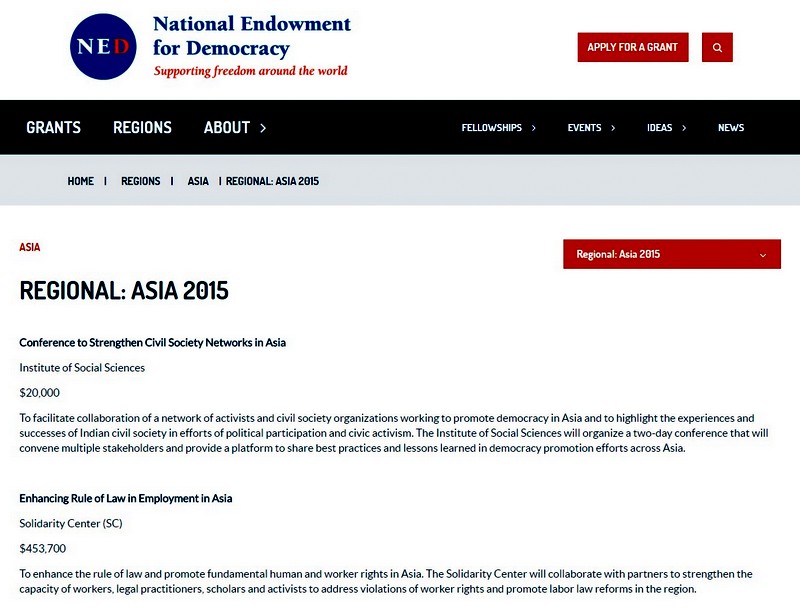
NED Annual Report 2015 – Grants to Asia Regional, including Hong Kong

NED Grants in Hong Kong in 2014
According to the NED Annual Report for 2014, the following US Government funds were allocated by the US Congress and dispersed by the NED for programs in Hong Kong:
Listed under NED Grants in China (Hong Kong)
Solidarity Center
Freedom of Association
$154,669
Expanding Worker Rights and Democracy
To advance worker rights and democracy and strengthen civil society in Hong Kong. The Solidarity Center will collaborate with its partners to strengthen the organizing, bargaining and advocacy skills of Hong Kong trade unions. The project will also seek to promote better understanding in the international labor and human rights communities about worker rights developments in China.
Listed under NED Grants – Asia Regional
National Democratic Institute for International Affairs
Political Processes - $410,000
Amplifying Citizens’ Voices in Hong Kong & China
To engage Hong Kong civic and political sectors in substantive dialogue around governance and electoral reform processes and to provide civic education for Chinese activists. NDI will assist efforts to promote citizens’ voices in Hong Kong’s political reform process and provide technical assistance to Chinese activists on organizational and advocacy skills. In Hong Kong, NDI will support online platforms and community initiatives that promote citizen-created models of governance. NDI will also conduct a young women’s leadership initiative.
National Democratic Institute for International Affairs
Political Processes - Supplement: $51,210
Amplifying Citizens’ Voices in Hong Kong
To amplify citizens’ voices in Hong Kong’s political reform process and provide technical assistance to mainland Chinese activists on organizational and advocacy skills. In Hong Kong, NDI will support online platforms and community initiatives that promote citizen-created models of governance. NDI will also conduct a young women’s leadership initiative for up to 20 participants from mainland China and Hong Kong.
NED Annual Report 2014 – Grants to China (Hong Kong)
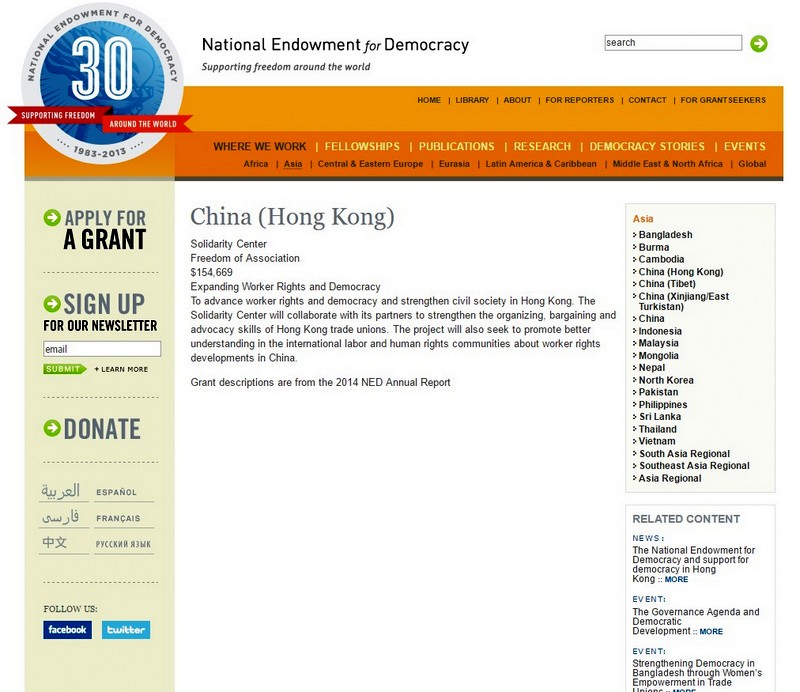
NED Annual Report 2014 – Grants to Asia Regional, including Hong Kong
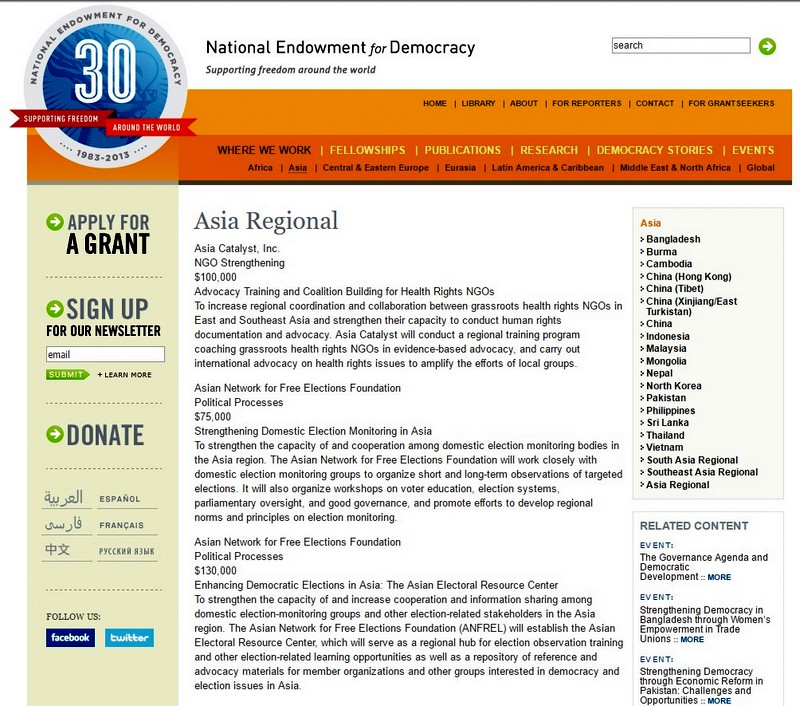
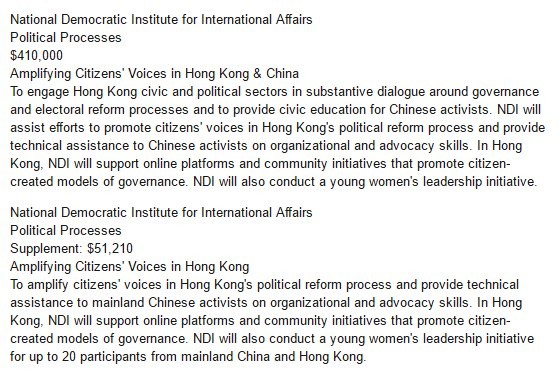
NED Annual Report 2014 – False rebuttal that the
NED was involved in organising the Occupy Central protests
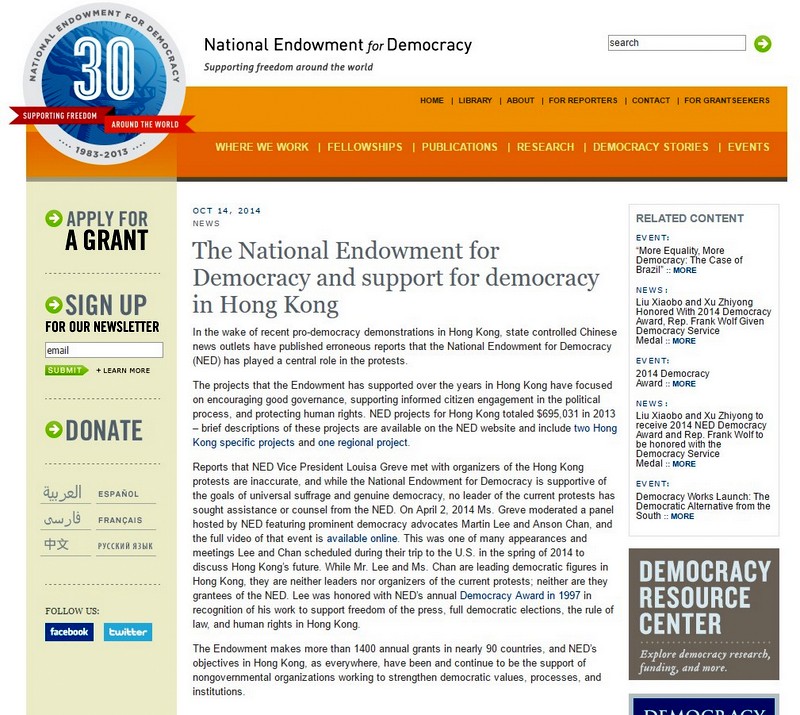
NED Grants in Hong Kong in 2013
According to the NED Annual Report for 2013, the following US Government funds were allocated by the US Congress and dispersed by the NED for programs in Hong Kong:
Listed under NED Grants in China (Hong Kong)
Hong Kong Human Rights Monitor
$145,000
Protecting Human Rights and Encouraging Democratic Representation in Hong Kong
To improve human rights protection and democratic representation in Hong Kong. The Monitor will carry out advocacy, human rights monitoring, casework, campaigning, and public education drawing local and international attention to civil rights and human rights developments in Hong Kong.
Solidarity Center
$150,031
Expanding Worker Rights and Democracy
To promote worker rights and support an independent voice for workers. The
Solidarity Center will work with its partners to strengthen their
organizing, bargaining and advocacy skills. The project will also seek to
build the capacity of trade unions that represent domestic workers to
improve working conditions for their members.
Listed under NED Grants – Asia Regional
National Democratic Institute for International Affairs - $400,000 - Enhancing Representative Governance - To strengthen the ability of mainland Chinese civil society organizations (CSOs) to request and publicize information under China's open government regulations, and to strengthen the ability of Hong Kong CSOs to conduct organized monitoring of legislative processes. In both contexts, NDI will work with CSO partners to shed light on government actions and contribute to greater accountability and better governance.
NED Annual Report 2013 – Grants to China (Hong Kong)
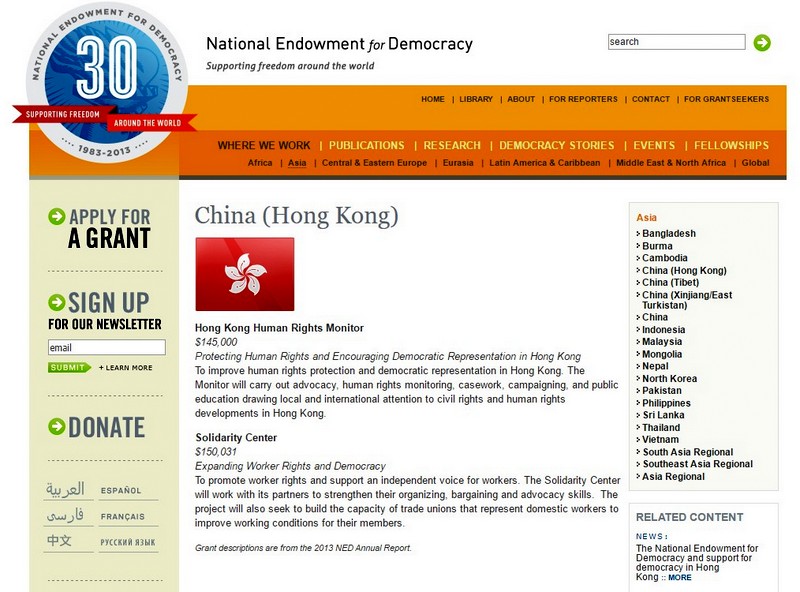
NED Annual Report 2013 – Grants to Asia Regional, including Hong Kong
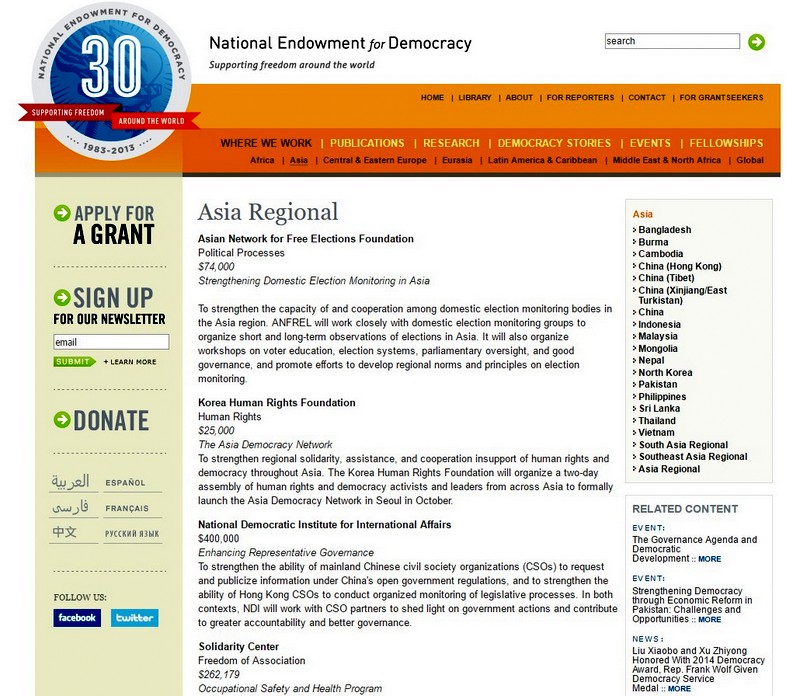
NED Grants in Hong Kong in 2012
According to the NED Annual Report for 2012, the following US Government funds were allocated by the US Congress and dispersed by the NED for programs in Hong Kong:
American Center for International Labor Solidarity
$139,532
To continue to advance worker rights by building the capacity of democratic trade unions in Hong Kong. The Solidarity Center will work with its partners to advocate for collective bargaining rights, utilize local and international mechanisms to improve working conditions, and promote understanding of worker rights abuses and developments in China among the international labor movement and human rights community.
Hong Kong Human Rights Monitor
$155,000
To raise the standards of human rights protection
and democratic representation in Hong Kong. The Monitor will carry out human
rights monitoring, casework, campaigning, and public education drawing local
and international attention to civil rights and human rights developments in
Hong Kong.
National Democratic Institute for International Affairs
$460,000
To foster awareness regarding Hong Kong's political institutions and constitutional reform process and to develop the capacity of citizens - particularly university students - to more effectively participate in the public debate on political reform, NDI will work with civil society organizations on parliamentary monitoring, a survey, and development of an Internet portal, allowing students and citizens to explore possible reforms leading to universal suffrage.
NED Annual Report 2012 – Grants to China (Hong Kong)
NED Grants in Hong Kong in 2011
According to the NED Annual Report for 2011, the following US Government funds were allocated by the US Congress and dispersed by the NED for programs in Hong Kong:
American Center for International Labor Solidarity
$153,106
To expand worker rights by building the capacity of democratic trade unions in Hong Kong. The Solidarity Center will work with its local partners to advocate for collective bargaining rights, promote citizens' political and community engagement on workplace issues, and raise international awareness of worker rights developments and violations in mainland China, Hong Kong and Macau.
Hong Kong Human Rights Monitor
$170,000
To raise the standards of human rights protection and democratic representation in Hong Kong. The Monitor will carry out human rights reporting, casework, campaigning, and public education drawing local and international attention to civil rights and human rights developments in Hong Kong.
NED Annual Report 2011 – Grants to China (Hong Kong)
NED Grants in Hong Kong in 2010
According to the NED Annual Report for 2010, the following US Government funds were allocated by the US Congress and dispersed by the NED for programs in Hong Kong:
American Center for International Labor Solidarity
$148,869
To promote freedom of association by strengthening
democratic trade unions in Hong Kong. The Solidarity Center will work with
its local partners to support collective bargaining, membership organizing,
civic empowerment and research.
NED Annual Report 2010 – Grants to China (Hong Kong)
NED Grants in Hong Kong in 2009
According to the NED Annual Report for 2009, the following US Government funds were allocated by the US Congress and dispersed by the NED for programs in Hong Kong:
American Center for International Labor Solidarity
$130,860
To promote freedom of association by building the capacity of democratic trade unions in Hong Kong. The Solidarity Center will work with its local partner to support initiatives for collective bargaining, member organizing and civic empowerment.
Hong Kong Human Rights Monitor
$170,000
To raise the standards of human rights protection and democratic representation in Hong Kong. The Monitor will carry out human rights reporting, casework, campaigning, and public education drawing local and international attention to civil rights and human rights developments in Hong Kong.
National Democratic Institute for International Affairs (NDI)
$272,140
To advance the dialogue between citizens and political actors on constitutional reforms. Through sponsoring public forums and a political participation website, NDI will support local civil society organizations to analyze and provide recommendations on the government’s proposal for constitutional reform.
NED Annual Report 2009 – Grants to China (Hong Kong)
NED Grants in Hong Kong in 2008
According to the NED Annual Report for 2008, the following US Government funds were allocated by the US Congress and dispersed by the NED for programs in Hong Kong:
American Center for International Labor Solidarity
$125,456
To foster freedom of association and other worker rights in China and Hong Kong. Local partners will seek to strengthen civil society by building members’ advocacy capacity, expanding the current labor union base, encouraging the participation of unions and their members in democratic processes, strengthening a migrant workers assistance network, and increasing union members’ access to legal assistance and knowledge of labor law.
Civic Exchange
$59,967*
To engage the public in discussion of governance reforms. Civic Exchange will carry out a diverse program of research and public education on key topics related to universal suffrage and electoral and constitutional reform.
Hong Kong Human Rights Monitor
$170,000*
To raise the standards of human rights protection and democratic representation in Hong Kong. The Monitor will carry out human rights reporting, casework, campaigning, and public education drawing local and international attention to civil and human rights developments in Hong Kong.
NED Annual Report 2008 – Grants to China (Hong Kong)
NED Grants in Hong Kong in 2007
According to the NED Annual Report for 2007, the following US Government funds were allocated by the US Congress and dispersed by the NED for programs in Hong Kong:
American Center for International Labor Solidarity
$135,000
To foster freedom of association and other worker rights in China and Hong Kong. Local partners will seek to strengthen civil society by expanding the current labor union base, encouraging the participation of unions and their members in democratic processes, strengthening a migrant workers assistance network, and increasing union members’ access to legal assistance and knowledge of labor law.
Civic Exchange
$64,983*
To engage the public in discussion of governance reforms. Civic Exchange will carry out a diverse program of research and public education on key topics related to universal suffrage and electoral and constitutional reform.
Hong Kong Human Rights Monitor
$170,000*
To raise the standards of human rights protection and democratic representation. The Monitor will carry out human rights reporting, casework, campaigning, and public education drawing local and international attention to civil and human rights developments in Hong Kong.
NED Annual Report 2007 – Grants to China (Hong Kong)
NED Grants in Hong Kong in 2006
According to the NED Annual Report for 2006, the following US Government funds were allocated by the US Congress and dispersed by the NED for programs in Hong Kong:
American Center for International Labor Solidarity
$125,000
To foster freedom of association and other worker rights. ACILS will support local trade-union education and outreach programs, as well as a research program raising international awareness regarding the current labor-rights situation in China.
Civic Exchange
$86,000*
To engage the public in discussion of governance reforms. Civic Exchange will carry out a diverse program of research and public education on key topics related to universal suffrage and electoral and constitutional reform.
Hong Kong Human Rights Monitor
$175,000*
To raise the standards of human rights protection and democratic representation. The Monitor will carry out human rights reporting, casework, campaigning, and public education drawing local and international attention to civil and human rights developments in Hong Kong.
NED Annual Report 2006 – Grants to China (Hong Kong)
NED Grants in Hong Kong in 2005
According to the NED Annual Report for 2005, the following US Government funds were allocated by the US Congress and dispersed by the NED for programs in Hong Kong:
Civic Exchange
$45,000*
To promote informed debate on constitutional reform. Civic Exchange will carry out public opinion research and hold a public debate on models of constitutional reform, publish two papers that discuss selected reforms in mainland China and their relevance as points of reference for Hong Kong, and conduct outreach to the public on the broad spectrum of reform concerns.
Hong Kong Human Rights Monitor
$173,000*
To raise the standards of human rights protection and democratic representation. The Monitor will carry out human rights reporting, casework, campaigning, and public education drawing local and international attention to civil and human rights developments in Hong Kong.
NED Annual Report 2005 – Grants to China (Hong Kong)
NED Grants in Hong Kong in 2004
According to the NED Annual Report for 2004, the following US Government funds were allocated by the US Congress and dispersed by the NED for programs in Hong Kong:
Civic Exchange
$125,000*
To build support for a democratic constitution. Civic Exchange will engage the public in consideration of potential constitutional reforms and advocate that the government seek citizen approval of any proposed constitution. Activities will consist of reports on Hong Kong's functional constituency system and the role of public dialogue in political development, as well as the organization of public forums, town hall style gatherings and formal debates.
Hong Kong Human Rights Monitor
$173,280*
To carry out a broad ranging program of education and monitoring to draw local and international attention to human rights and constitutional developments in Hong Kong. The Monitor will produce educational materials, issue in-depth reports, conduct programs in conjunction with schools and civic groups, hold a human rights film festival and organize public seminars.
National Democratic Institute for International Affairs (NDI)
$190,000
To strengthen political parties and support democratic activism. NDI will conduct political party consultations and training seminars; facilitate the development and publication of a multi-party public opinion poll and provide assistance in the development of voter guides in advance of the Legislative Council elections in September 2004.
National Democratic Institute for International Affairs (NDI)
$50,000*
To work to improve the ability of Hong Kong civil society organizations to advocate for democratization and good governance in Hong Kong. NDI will support a Hong Kong partner to conduct a governance review and undertake a post-election assessment following the Legislative Council elections in September 2004.
NED Grants in Hong Kong in 2003
According to the NED Annual Report for 2003, the following US Government funds were allocated by the US Congress and dispersed by the NED for programs in Hong Kong:
American Center for International Labor Solidarity
US$260,434
To collaborate with the Hong Kong Confederation of Trade Unions and other Hong Kong-based labor rights NGOs to provide basic training and education on trade union rights and other labor rights. The coalition will strengthen the work of the Yuen Long training center, which conducts leadership workshops, educates unemployed workers in government-sponsored job retraining courses, and conducts research to determine what types of manpower training and skills assessment best serve the needs of the workers in Hong Kong.
Hong Kong Human Rights Monitor
$60,000
To carry out human rights reporting, casework, campaigning and public education, drawing local and international attention to civil and human rights developments in Hong Kong.
National Democratic Institute for International Affairs
$179,999
To provide technical assistance and training to Hong Kong political parties to strengthen the role of parties in Hong Kong, and to support pro-democracy civil society organizations in their efforts to draw attention to the deterioration of political rights in the territory.
NED Grants in Hong Kong in 2002
According to the NED Annual Report for 2002, the following US Government funds were allocated by the US Congress and dispersed by the NED for programs in Hong Kong:
Listed under NED Grants in China
American Center for International Labor Solidarity
$198,063
To assist democratic unions and labor rights organizations in Hong Kong that are working to protect worker and union rights in the South China region.
National Democratic Institute for International Affairs
$205,076
To organize resources and activities, in partnership with the Center for the Study of People’s Congress and Foreign Legislatures at Peking University Law School, in order to educate Chinese legislative members and staff, researchers, and students about democratic legislative norms and processes; and to provide materials, direct technical assistance, and other resources to Hong Kong organizations advocating for democratic reform in the Hong Kong Special Administrative Region.
Listed under NED Grants in Hong Kong
Hong Kong Human Rights Monitor
$51,000
To carry out human rights reporting, casework, campaigning, and public education, drawing local and international public attention to areas of Hong Kong law and practice that fail to safeguard human rights.
NED Grants in Hong Kong in 2001
According to the NED Annual Report for 2001, the following US Government funds were allocated by the US Congress and dispersed by the NED for programs in Hong Kong:
Listed under NED Grants in China
American Center for International Labor Solidarity
$198,073
To assist democratic unions and labor rights organizations in Hong Kong that are working to protect worker and union rights in the South China region.
National Democratic Institute for International
Affairs
$209,778
To provide comparative research findings to educate legislative staff members, researchers and students on democratic norms; organize two seminars on democratic legislative processes; and assist democratic reform in Hong Kong.
Listed under NED Grants in Hong Kong
Hong Kong Human Rights Monitor
$51,000
To combine legal defense of civil rights with public campaigns and education to cultivate public opinion favorable to democratization and the rule of law.
NED Grants in Hong Kong in 2000
According to the NED Annual Report for 2000, the following US Government funds were allocated by the US Congress and dispersed by the NED for programs in Hong Kong:
Listed under China
The American Center for International Labor Solidarity - $184,560
To assist democratic unions and labor rights organizations in Hong Kong working to protect worker and union rights in the South China region.
Listed under Hong Kong
Hong Kong Human Rights Monitor - $48,000
To carry out human rights reporting, casework, campaigning and public education drawing local and international public attention to the Hong Kong laws and practices that fail to safeguard human rights.
NED Grants in Hong Kong in 1999
According to the NED Annual Report for 1999, the following US Government funds were allocated by the US Congress and dispersed by the NED for programs in Hong Kong:
Listed under China
American Center for International Labor Solidarity - $202,399
To support the work of the Hong Kong-based China Labour Bulletin to investigate and document labor conditions and worker activism in China. The program also includes support for labor and human rights education efforts to inform workers about their rights under national and local laws.
American Center for International Labor Solidarity - $170,997
To provide support to the Hong Kong Confederation of Trade Unions to improve its membership outreach and coalition-building activities. ACILS will also support the research and documentation activities of a labor rights NGO concentrating on conditions in southern China.
Listed under Hong Kong
Hong Kong Human Rights Monitor - $48,000
To campaign for improvements in legal and institutional human rights safeguards in Hong Kong. The Monitor will continue its program of human rights reporting, case work, campaigning, and public education, and will also participate in the U.N. human rights fora.
National Democratic Institute for International Affairs - $67,164
To support democracy activists as they define their role in the new political system in Hong Kong that limits opportunities for public input into the policy-making process. The program will offer consultations to political parties competing for seats on directly elected local governments, and conduct a training program on grassroots organizing and volunteer recruitment.
NED Grants in Hong Kong in 1998
According to the NED Annual Report for 1998, the following US Government funds were allocated by the US Congress and dispersed by the NED for programs in Hong Kong:
Hong Kong – Listed under China
American Center for International Labor Solidarity - $343,778
To help the China Labor Bulletin, the Hong Kong Confederation of Trade Unions, and Hong Kong-based labor rights groups promote worker and union rights in the greater China region.
Hong Kong Human Rights Monitor - $45,000
To draw local and international public attention to areas of Hong Kong law which fail to safeguard human rights. Hong Kong Human Rights Monitor projects include human rights reporting, casework, campaigning, and public education.
National Democratic Institute for International Affairs - $141,877
To monitor the state of civil and political liberties in Hong Kong and its progress toward a genuinely democratic electoral system. NDI supported a democratic assessment team that analyzed the political environment and technical preparations for the May 1998 polls.
NED Grants in Hong Kong in 1997
According to the NED Annual Report for 1997, the following US Government funds were allocated by the US Congress and dispersed by the NED for programs in Hong Kong:
Hong Kong Human Rights Monitor - $40,000
To focus local and international public attention on areas of Hong Kong law and practice that fail to safeguard human rights. The Monitor works to strengthen the foundations of and commitment to the rule of law in Hong Kong.
National Democratic Institute for International Affairs - $100,120
To monitor the development of Hong Kong's "post-reversion" election framework, the election process, and the ability of political parties and civic groups to participate in the process.
NED Grants in Hong Kong in 1996
According to the NED Annual Report for 1996, the following US Government funds were allocated by the US Congress and dispersed by the NED for programs in Hong Kong:
Listed under NED Grants in China
Free Trade Union Institute - $359,393
Through the Asian American Free Labor Institute: for the monitoring of labor rights violations and dissemination of information on rights to workers in China; for the Hong Kong Confederation of Trade Unions to retain member support after the Chinese takeover through contributions to public debate, regular distribution of a newsletter, and maintenance of their headquarters as a rallying point and resource center for democracy activists; and for a regional conference to expand cooperation among labor activists from Hong Kong, Taiwan, Macao, and China.
University of Hong Kong Faculty of Law - $60,000
To equip and train three additional local partners in China to expand the Law-on-Line project, a bilingual database of information and documentation on human rights laws and legal issues available on the Internet.
Listed under NED Grants in Hong Kong
Hong Kong Human Rights Monitor - $36,000
To hire a full-time staff director to coordinate the organization's work in human rights reporting, casework, campaigning, and public education.
MORE
CHINA
Saturday, September 24, 2016
NED Grants in China in 2015
According to the NED Annual Report for 2015, the following US Government funds were allocated by the US Congress and dispersed by the NED for programs in China:
Advancing Citizen Priorities through Civil Society
and Accountable Governance
International Republican Institute (IRI)
$825,000
To promote progress toward an accountable, representative, and inclusive political system in China, the organization will support independent non-governmental organizations and reform-minded individuals to foster civic engagement, promote capacity building, and incubate inclusive governance practices. Activities will include conducting town hall meetings, promoting participatory models for budget reform, partnering with an academic institution to host a forum, and establishing an electronic resource library.
Advocating for Chinese Civil Society
China Change
$61,000
To bring international attention, support, and recognition to Chinese rights
defenders. The organization will highlight the perspectives of Chinese
intellectuals and human rights activists through interviews, commentary,
profiles, and news published on its website and disseminated via social
media.
Bolstering Human Rights Activism and Rights Based Civil Society
Human Rights
$250,000
To support the work of Chinese human rights defenders to raise rights
awareness, document abuses, and bolster rights based civil society. Civil
society activists will be supported in developing their capacity in
strategic planning, organizational development, and networking; and human
rights defenders will receive training in how to cope with abusive
practices, and raise awareness of significant human rights violations.
Bolstering Human Rights Activism and Rights Based Civil Society
Human Rights
Supplement: $20,000
To support the work of Chinese human rights defenders to raise rights
awareness, document abuses, and bolster rights-based civil society advocacy.
Civil society activists will be assisted in developing their capacity in
strategic planning, organizational development, and networking; human rights
defenders will be supported in their efforts to cope with abusive practices;
and raise awareness of significant human rights violations.
Building Human Rights Advocacy Capacity and Empowering Civil Society
Human Rights
$520,000
To promote transparency, accountability, human rights, and access to justice
in China. This project will foster cooperation among Chinese rights
defenders and carry out a broad program of advocacy, capacity building, and
support for human rights defense activities.
Building the Capacity of Civil Society
Accountability
$127,445
To improve the capacity of civil society organizations working on
anti-discrimination issues in conducting legal and policy work, and to
improve the capacity of women lawyers working on antidiscrimination and
consumers’ rights cases. The organization will facilitate trainings for
civil society in the use of public interest litigation and advocacy
strategies and also support the development of civil society actors.
Circumventing Internet Censorship in China
China Digital Times, Inc.
$70,000
To strengthen the community of digital activists by creating strategies to
circumvent the “Great Firewall” and by popularizing the use of
anti-censorship tools and practices. The project will provide timely
information on censorship developments and distribute anti-censorship
technologies to civic-minded Chinese Internet users.
Combatting Censorship and Creating Channels for Free Expression
China Digital Times, Inc.
$490,000
To provide an open platform to access censored news, opinion, art, and
commentary by Chinese citizens. The program will reintegrate censored
political writing and social commentary into Chinese cyberspace and build a
community of tech-savvy, politically aware Internet users. The group will
also translate selected writings to give the international community access
to uncensored Chinese opinions and political commentary.
Debating Democratic Reform
Democratic China, Inc.
$200,000
To provide a platform for debate and intellectual discourse on democratic
movements and strategies for democratization in China. The organization will
publish articles by academics, activists, students, and artists about
current social and political issues. The group will also maintain space to
develop the framework and influence of Charter ’08 and promote political
reform.
Democracy and Independent Filmmaking
Freedom of Information
$60,000
To overcome censorship, raise human rights awareness, and document human
rights violations. The organization will support the production of
independent documentaries and human rights awareness-raising initiatives by
civil society activists. The documentaries will serve to promote messages of
democracy and government accountability.
Documenting Human Rights Abuses and Empowering Citizen Journalists
Freedom of Information
$50,000
To raise awareness about human rights violations through citizen journalism
and art. The organization will document human rights abuses, with a focus on
land rights violations and forced psychiatric institutionalization. The
group will also work with grassroots journalists to conduct investigative
reporting and write research reports, and will work to strengthen its
network of grassroots activists, legal professionals, and journalists.
Education on Civil Society and Democratization
Democratic Ideas and Values
$125,000
To educate and train civil society activists on democratization and social
movements and to provide a platform for youth to engage in discussion of
democratic ideas, including tolerance, conflict resolution, and civil
society activism. A multi-platform program will be provided for Chinese
youth to learn about modern history and current events, comparative
democratic development, and civil society initiatives.
Empowering Civil Society to Protect Rights
Asia Catalyst, Inc.
$160,000
To improve the operational capacity of Chinese NGOs and to advocate for
human rights. The organization will support training programs for NGO staff
and volunteers, including workshops on decision-making and internal
governance processes; provide short-term consulting services for a variety
of groups; work with selected organizations to build management skills;
develop online tools accessible to the broader community of NGOs; and
conduct advocacy in and out of China on important public health
discrimination issues and concerns regarding administrative detention.
Empowering the Chinese Legal Community
Rule of Law
$105,000
To strengthen the capacity of China’s human rights legal community. The
organization will support training and development of resources for human
rights lawyers and support legal aid in selected cases. The organization
will also support targeted domestic advocacy and undertake international
advocacy to highlight the work of human rights lawyers and mobilize pressure
to stop harassment and persecution targeted at human rights lawyers.
Enforcement of Labor Laws
Freedom of Association
$30,000
To build the capacity of civil society activists to promote enforcement of
Chinese labor laws and regulations. The organization will conduct trainings
and workshops on advocacy and enforcement of labor law and other legal
rights, and will also file legal cases to help targeted groups of vulnerable
workers.
Enhancing Access to Justice and Countering Impunity
Rule of Law
$65,000
To strengthen the rule of law and expand access to the legal system for
disadvantaged groups. Underrepresented groups and underserved areas will
receive legal assistance that addresses government abuses or failure to act
to protect the rights of citizens. In addition, training will be provided
for groups working to promote government accountability.
Environmental Rights: Civil Society and Government Accountability
Accountability
$150,000
To strengthen the capacity of environmental NGOs to conduct advocacy and
build norms of environmental accountability. The organization will work with
local partners on a variety of educational, research, public policy
advocacy, outreach, and legal aid activities to address environmental
concerns.
Fostering Interethnic and Interfaith Solidarity
Initiatives for China Inc.
$86,500
To foster trust and cooperation between different ethnic and religious
groups. The organization will hold its eleventh annual Interethnic and
Interfaith Conference to bring together prodemocracy activists from groups
both inside and outside of China to share experiences and advocacy tools,
and discuss current events and opportunities for cooperation.
Human Rights Monitoring and Advocacy for Ethnic Mongolians in China
Southern Mongolian Human Rights Information Center
$135,000
To advance the human rights of ethnic Mongolians living in the Inner
Mongolian region of China. The center will report on the human rights
conditions in Inner Mongolia and publish its findings and related news
through its website, press releases, and its multi-language publication,
Southern Mongolian Watch.
Monitoring Media Freedom
Freedom House
$45,000
To promote awareness among Chinese and Western stakeholders of information
and media control by the government and potential responses to such control.
The organization will produce the China Media Bulletin, a monthly
publication in Chinese and English. The publication will provide target
audiences with comprehensive information on censorship in China.
Promoting Democratic Policy Change
Rule of Law
$75,000
To encourage public discussion, transparency, and advocacy about China’s
family planning policies. Research and reporting on the policies and
practices of family planning agencies will be conducted, and legal
assistance for victims and advocacy will be organized to advance respect for
individual rights.
Promoting Democratic Values in China
Wei Jingsheng Foundation, Inc.
$68,100
To promote awareness among Chinese of democratic values and to inform the
international community about the human rights situation in China. The
organization will continue its outreach through its website, distribution of
information in China, and frequent interviews with the international and
Chinese press.
Promoting Media Freedom in China
International Federation of Journalists – Asia Pacific
$59,700
To protect press freedom in China and raise awareness of press freedom
violations. The International Federation of Journalists -Asia will increase
the capacity of journalists to report on political events and human rights
by providing training in international standards and practices, as well as
facilitating regional engagement in monitoring press freedom in China and
distributing advocacy materials.
Promoting Respect for the Rule of Law
Rule of Law
$120,000
To strengthen the rule of law and ensure lawyers are equipped to engage
effectively in protecting human rights. The organization will support legal
training on combating torture and other abuses by police, as well as
research and advocacy on criminal defense reforms. The project will also
seek to strengthen legal networks interested in human rights issues.
Protecting Rural Property Rights
Center for International Private Enterprise (CIPE)
$156,764
To protect rural property rights by informing residents of their rights and
equipping them with the knowledge needed to protect these rights. The
grantee’s partner will conduct one legal training workshop, six rights
protection seminars, and an exchange program. Additionally, this project
will establish two self-learning centers in select villages. The grantee
will also provide logistical assistance and technical expertise on the issue
of property rights.
Protecting the Rights of Chinese Private Entrepreneurs
Center for International Private Enterprise (CIPE)
$132,115
To help Chinese private entrepreneurs protect their legal and property
rights and to educate them on how best to defend their rights. The grant
will support a local partner to conduct legal training workshops and rights
protection forums, and will lay the foundation for a program designed to
enable participants to share experience, expertise, and resources. The
program will also provide the partner with technical assistance on
strengthening the rule of law and creating local ecosystems of
entrepreneurship.
Raising Democratic Awareness
Democratic Ideas and Values
$6,820
To foster an awareness of democratic development and democratic values,
particularly among students and young adults. Relevant course materials will
be translated and printed in accessible language that provides a comparative
perspective on democratic development, ideas, and values for distribution.
Religious Freedom, Rights Defense and Rule of Law
Rule of Law
$48,000
To assist victims of religious persecution in defending their human rights
and freedom of religion. The organization will support rule of law trainings
and provide legal assistance directed at protecting religious freedom. The
organization will also arrange for exchanges between Chinese civil society
leaders and counterparts abroad on freedom of religion.
Strategic Support for Human Rights Lawyers
Rule of Law
$200,000
To strengthen the rule of law and protection of rights for human rights
lawyers. The organization will provide assistance to lawyers to take on
important cases concerning human rights. These cases will have the potential
to strengthen the legal system, provide momentum for policy change, and
highlight weaknesses in laws or their enforcement. The project will also
work to build the capacity of lawyers through workshops.
Strengthening Labor Rights
Freedom of Association
$150,000
To strengthen labor rights and raise the capacity of workers to represent
their interests. The organization will conduct in-depth research on labor
issues, assist in worker trainings to provide information on labor rights
and collective bargaining, and engage in related legal aid activities.
Strengthening Public Interest Law
Accountability
$140,000
To strengthen the rule of law, improve government accountability, expand the
space for civil society to influence policies and laws, and to promote
public participation and enhance the ability of vulnerable groups and
consumers to protect their rights and interests. The organization will use
its model of advocacy, strategic litigation, policy recommendations, and
public outreach to protect citizens’ rights in the areas of consumer
protection, discrimination against vulnerable social groups, and family
planning.
Supporting Free Expression and Open Debate
Princeton China Initiative
$185,000
To provide a forum for free expression and to stimulate open debate on
China’s international role. The organization will produce the online
publication China in Perspective, which provides a platform for Chinese
academics, journalists, and independent researchers to discuss issues
related to comparative democratization, Chinese foreign policy, democratic
movements, and nationalism. The organization will also convene a conference
on the 60th anniversary of the start of the Cultural Revolution.
Supporting Human Rights Defenders
Human Rights
$25,000
To promote civil society development and human rights activism by providing
support to human rights activists, political thinkers, and their families.
Through coordination and collaboration with multiple networks, the
organization will provide targeted and timely assistance to human rights
activists facing harassment and arrest.
Worker Representative Training and Empowerment
Freedom of Association
$40,000
To cultivate and train a network of worker representatives to empower
workers in their respective workplaces. The grantee will support a series of
focused trainings for workers on trade union organizing theories, skills and
strategies.
Worker Rights Awareness in China
Solidarity Center (SC)
$325,000
To strengthen the capacity of workers and their advocates to defend worker
rights in China. The organization will continue to support grassroots
workers and independent worker rights organizations’ efforts to promote
strengthened worker rights and extend the rule of law to Chinese workers.
NED Grants in China in 2014
According to the NED Annual Report for 2014, the following US Government funds were allocated by the US Congress and dispersed by the NED for programs in China:
Asia Catalyst, Inc.
NGO Strengthening
$160,000
Empowering Civil Society to Protect the Right to Health
To improve Chinese NGOs’ operational capacity and to advocate for human
rights in China. Asia Catalyst will organize training programs for NGO staff
and volunteers, including workshops on decision-making and internal
governance processes; provide short-term consulting services for a variety
of groups; work with selected organizations to build management skills;
develop online tools accessible to the broader community of NGOs; and
conduct advocacy in and out of China on important public health
discrimination issues and concerns regarding administrative detention.
Center for International Private Enterprise
Developing Market Economy
$156,244
Protecting Rural Property Rights
To improve rural residents’ understanding of property rights and to equip
them with the knowledge needed to protect their rights. CIPE’s partner
organization will conduct legal training workshops, rights protection
seminars, and cross-village exchange programs, and will establish five
self-learning centers in selected villages. CIPE will provide logistical
assistance to the partner organization with materials and other resources
relevant to rural property rights, as well as provide input on the workshop
content.
Center for International Private Enterprise
Accountability
$173,399
Enabling Free & Open Debate
To provide opportunities for free and open public debate, to improve public
awareness of the political development process, and to cultivate public
consensus on China’s reforms. CIPE will continue its series of weekly
discussion forums at which current events, political issues, and reform
agendas are openly and freely discussed at local venues open to the public.
CIPE and its local partner will also analyze democratic transitions
throughout the world, with an emphasis on European countries, and apply
those lessons to the Chinese context.
Center for International Private Enterprise
Accountability
$188,023
Improving Local Governance & Promoting Public Policy Dialogue
To encourage better local governance, and to promote free and open public
debate about political issues and reform agendas. CIPE will work with a
partner organization to rank various provinces on the quality of local
governance. CIPE will also support its partner organization in hosting
discussion forums on public policy and current events.
China Change
Freedom of Information
$55,000
Informing the World about China’s Human Rights Defenders
To bring attention, support, and recognition to Chinese rights defenders.
The organization will highlight the perspectives of Chinese liberal
intellectuals, dissidents, and human rights activists through interviews,
commentary, and profiles published on its website, China Change and
disseminated via social media.
China Digital Times, Inc.
Freedom of Information
$300,000
Researching and Circumventing Internet Censorship in China
To counter Chinese Internet censorship and strengthen the community of
digital activists. China Digital Times will provide information on censored
content and make available censorship-resistant technologies to politically
active Chinese Internet users.
Democratic China, Inc.
Democratic Ideas and Values
$200,000
Democratic China: An Online Magazine Focusing on Political Theory and
Democratic Development
To stimulate uncensored debate and discussion among Chinese scholars,
students, professionals, and dissidents about how to facilitate the peaceful
reform of China into a more open, pluralistic, and democratic society.
Democratic China, Inc. will produce its online magazine Democratic China and
provide assistance to activists experiencing difficulties because of their
democracy work.
Independent Chinese PEN Center
Freedom of Information
$170,000
Defending Freedom of Expression
To promote freedom of expression and strengthen the commitment of writers
and independent intellectuals to democratic principles. The Independent
Chinese PEN Center will provide a platform to counter censorship by
publishing works by banned writers, and organize domestic and international
advocacy campaigns on behalf of imprisoned writers and journalists.
Independent Chinese PEN Center
Freedom of Information
$100,000
Defending Freedom of Expression in China
To promote freedom of expression by amplifying independent voices defending
civil liberties from within China. The Independent Chinese PEN Center will
publish works by banned writers to counter censorship and organizing
domestic and international advocacy campaigns on behalf of imprisoned
writers and journalists.
Initiatives for China Inc.
Conflict Resolution
$85,000
Promoting Inter-ethnic Understanding and Democratic Values
To promote inter-ethnic understanding, mutual trust, and cooperation among
pro-democracy activists from different ethnic groups in China. Initiatives
for China will organize an inter-ethnic conference and coordinate the
dissemination of information focused on conflict resolution, democratic
development, human rights, and religious freedom.
International Federation of Journalists – Asia Pacific
Freedom of Information
$45,000
Promoting Media Freedom in China and Hong Kong
To strengthen the capacity of journalists to advance press freedom in China.
IFJ will provide training in international standards and practices,
facilitate regional engagement in monitoring press freedom in China, and
distribute print and electronic reports and newsletters.
International Republican Institute
Democratic Ideas and Values
$1,300,000
Expanding Accountability, Representation, and Inclusivity
To promote the steady movement toward a more accountable, representative,
and inclusive political system in China, IRI will support independent
non-government organizations and reform-minded individuals to strengthen
political participation, gender awareness, rights protection, and
representative policies. Activities will include training independent
candidates for local elective office, supporting marginalized communities’
awareness of their legal rights, encouraging political participation and
civic input in decision-making, and assisting a vibrant Chinese civil
society that advocates for citizen needs.
Princeton China Initiative
Freedom of Information
$205,000
Supporting Free Expression and Open Debate for Chinese Democracy
To provide an effective forum for free expression and to stimulate liberal
debate on China’s international role. Princeton China Initiative will
publish China in Perspective Magazine, which provides a platform for Chinese
writers to discuss issues related to comparative democratization, Chinese
foreign policy, responsible international behavior, and nationalism.
Reporters Without Borders
Freedom of Information
$95,000
Supporting Freedom of Information in China
To improve the ability of professional journalists and citizen-journalists
to gather, analyze, and distribute news and information in China. Reporters
Without Borders will organize trainings, manage information networks, and
provide targeted assistance to reporters under pressure.
Solidarity Center
Freedom of Association
$319,000
Worker Rights Awareness
To strengthen the capacity of workers and their advocates to defend worker
rights in China. The Solidarity Center will continue to support efforts of
grassroots workers and independent worker rights organizations to promote
labor law enforcement and advocate for strengthened worker rights and
remedies.
Southern Mongolian Human Rights Information Center
Human Rights
$145,000
Human Rights Monitoring and Advocacy for Ethnic Mongolians in China
To advance the human rights of ethnic Mongolians living in the Inner
Mongolian region of China. The Southern Mongolian Human Rights Information
Center will report on the human rights conditions in the Inner Mongolia,
through its website and its multi-language publication, Southern Mongolian
Watch.
Wei Jingsheng Foundation, Inc.
Democratic Ideas and Values
$68,100
Promoting Democratic Values in China
To provide awareness among Chinese of democratic values and to inform the
international community about the human rights situation in China. The
Foundation will continue its outreach through its website, distribution of
information inside China, and frequent interviews with the international and
Chinese press.
Accountability
$100,000
Strengthening Citizen Advocacy on the Environment
To enhance public awareness of legal rights and to help build norms of
government accountability related to environmental issues. The organization
will work with local partners on a variety of educational, research, public
policy advocacy, outreach, and legal aid activities.
Accountability
$40,000
Promoting Public Participation
To promote accountability and public participation in China. The
organization will create a training handbook and conduct a series of
workshops for civil society activists on the principles of democratic public
participation and how to use civic mechanisms such as utilizing open
government information laws, pursuing public-interest issues through the
courts, and holding hearings. Participants will organize educational
seminars for their communities and form a civic action network.
Democratic Ideas and Values
$89,000
Education on Civil Society and Democratization
To educate and train civil society activists on democratization and social
movements and to provide a platform for youth on the exchange of democratic
ideas, including tolerance, conflict resolution, and civil society activism.
The organization will provide multi-media material and interactive forums,
delivered on a variety of digital devices as well as in traditional
settings, for Chinese youth to learn about recent history and current
events, comparative democratic development, and civil society initiatives.
Freedom of Association
$110,000
Strengthening Labor Rights in China
To promote labor rights and government accountability. The organization will
conduct in-depth research on labor issues, disseminate a variety of research
and educational publications, and engage in related legal aid and advocacy
activities.
Freedom of Association
$50,000
Documentaries on Government Policy Abuses
To project censored voices and support independent documentation and
awareness-raising initiatives to counter rights abuses enabled by flawed
policies and laws, lapses in due process, and lack of accountability.
Human Rights
$50,000
Empowering Citizen Journalists
To document and report on human rights violations, and to increase the
capacity of citizen journalists to cover stories objectively. The
organization will conduct investigations, interview victims, and publicize
its findings through reports, open letters, and the use of the arts. The
organization will also train citizen journalists in reporting and editing
skills.
Human Rights
$15,500
Supporting Human Rights Activists in China
To promote human rights activism by supporting and encouraging emerging
human rights defenders. The organization will provide targeted and timely
assistance to human rights activists facing harassment and arrest.
Human Rights
$200,000
Protecting and Supporting Chinese Human Rights Activists
To support the work of Chinese human rights defenders. The organization will
work with civil society activists to develop their capacity to raise
awareness of citizen rights under the law and the Constitution, to monitor
and document abuses, and to carry out their work in light of best practices
in rights advocacy.
Human Rights
$45,000
Promoting Awareness of Human Rights
To promote awareness about human rights. The organization will organize a
variety of seminars and publish an electronic magazine aimed at educating
future Chinese activists about human rights.
Human Rights
$520,000
Building Human Rights Advocacy Capacity and Empowering Chinese Civil Society
To promote transparency, accountability, effective change, and access to
justice in China. This project will foster cooperation among Chinese rights
defenders and carry out a broad program of advocacy, capacity building, and
support for human rights defense activities.
NGO Strengthing
$50,000
Promoting Women’s Legal Rights and Participation in Civil Society
To promote women’s rights and participation in civil society. The
organization will build coalitions and provide training for female activists
from various sectors of Chinese civil society, conduct research and
documentation, and raise awareness on women’s rights issues, particularly
via social media.
NGO Strengthing
$70,000
Supporting Emerging Civil Society Networks
To build the capacity of rights-focused civil society organizations. The
organization will provide activists with training in skills and knowledge
related to civic participation and rights defense, ongoing project
implementation advice, networking and information exchange opportunities,
and strategic planning assistance.
Rule of Law
$50,000
Supporting Checks and Balances on Government Power
To promote the rule of law and the development of public interest law in
China. The organization will improve access to law in underserved
communities by providing expertise and assistance to lawyers and citizen
representatives. As part of the project, staff will compile relevant legal
documents and case histories, to serve as the basis for future research.
Rule of Law
$180,000
Strengthening Public Interest Law and Rights Protection in China
To strengthen the rule of law, improve government accountability, and expand
the space for civil society to influence public policy; and to promote
public participation and enhance the ability of vulnerable groups and
consumers to protect their rights and interests. The organization will use
advocacy, strategic litigation, policy recommendation, and public
mobilization to protect citizens’ rights in the areas of consumer
protection, discrimination against vulnerable social groups, and family
planning.
Rule of Law
$65,000
Promoting Democratic Policy Change in China
To encourage greater public discussion, transparency, and advocacy regarding
Chinese government policies impacting family planning. The organization will
work to protect individual rights through research, providing legal
assistance, and bringing together an advocacy working group.
Rule of Law
$120,000
Promoting Respect for the Rule of Law and an End to Torture
To strengthen the rule of law and combat torture. The organization will
provide legal training on combating torture and support case work and
research on criminal defense reforms.
Rule of Law
$48,000
Religious Freedom, Rights Defense and Rule of Law in China
To promote religious freedom in China. The organization will support a
series of rule of law trainings and provide legal assistance directed at
protecting religious freedom.
Rule of Law
$105,000
Empowering the Chinese Legal Community
To strengthen the capacity of China’s rights defense legal community. The
organization will provide training and resources for the rights defense
legal community and support legal aid in selected cases. The organization
will also undertake targeted domestic and international advocacy to
highlight the work of rights-defense lawyers and mobilize pressure to stop
harassment and persecution targeted at them.
Rule of Law
Supplement: $60,000
To empower citizen lawyers to promote justice and rule of law in their local
areas. The organization will assist a network of human rights activists to
conduct trainings on legal education and conduct casework in defense of
basic civil liberties and citizens’ rights.
Rule of Law
$185,000
Support for Human Rights Lawyers
To strengthen the rule of law through support for human rights lawyers and
other advocates. The organization will provide legal aid on cases with the
potential to strengthen the legal system, illustrate the need for policy
change, influence implementation of laws, or highlight otherwise unknown
weaknesses in laws or their enforcement. The organization will also organize
exchange workshops for Chinese lawyers.
NED Grants in China in 2013
According to the NED Annual Report for 2013, the
following US Government funds were allocated by the US Congress and
dispersed by the NED for programs in China:
Asia Catalyst, Inc.
$150,000
Supporting Grassroots Health Rights Advocacy
To improve Chinese NGOs' operational capacity and to advocate for human
rights in China. Asia Catalyst will organize training programs for NGO staff
and volunteers, including workshops on decision-making and other internal
governance processes, provide short-term consulting services for a variety
of groups, work with selected organizations to build management skills,
develop online tools accessible to the broader community of NGOs, and
conduct advocacy inside and outside China on important public health
discrimination issues and concerns regarding administrative detention.
Center for International Private Enterprise
$141,436
Enabling Free and Open Debate
To provide opportunities for free and open public debate in China. CIPE will
continue its series of weekly discussion forums at which current events,
political issues, and reform agendas are discussed at venues open to the
public. CIPE and its partner will also analyze the democratic transitions of
several East European countries and apply those lessons to the Chinese
context in a research and policy paper.
Center for International Private Enterprise
$146,492
Protecting Rural Land-Use Rights
To protect rural land-use rights by improving rural residents' understanding
of land-use rights and to equip them with the knowledge needed to protect
these rights. CIPE and its partner will organize legal training programs and
peer-to-peer learning among villagers. This project will build on work
during the previous year to expand the project to additional localities.
Center for International Private Enterprise
$147,304
Protecting Women's Property Rights
To educate rural women on gender equality, land rights, and protection of
their rights; to improve village-level policy; and to raise awareness of
women's legal land rights among government officials. In support of this
objective, CIPE and its partner will carry out train-the-trainer workshops
and legal training workshops for rural women and government officials.
Center for International Private Enterprise
$126,056
Improving Transparency in Local Governments
To raise awareness among businesses, citizens and civil society groups of
existing regulations on government information disclosure. CIPE and its
partner will promote free and open public debate about current events,
political issues and reform agendas in China. This project proposes a
multi-faceted approach to raising public awareness of China's open
government information regulations, with the long-term aim of promoting
transparency and accountability in the Chinese public sector.
China Aid Association, Inc.
$90,000
Religious Freedom, Rights Defense and Rule of Law in China
To promote religious freedom in China. China Aid Association will publish a
biannual journal and maintain an online resource of materials on human
rights abuses suffered by religious believers. The organization will also
support legal aid and advocacy directed at protecting religious freedom.
China Digital Times, Inc.
$402,700
Empowering Citizen Media
To promote media freedom and civic engagement via the Internet in China.
China Digital Times will publish aggregated content that has been censored
or blocked in Chinese cyberspace to amplify suppressed voices on democratic
values and institutions, reveal the mechanisms of state censorship, and
create online tools for citizen journalism.
China Human Rights Lawyers Concern Group Limited
$140,000
Supporting Human Rights Lawyers in China
To strengthen the rule of law in China through support for human rights
lawyers and other advocates who seek to enforce elements of China's
Constitution. China Human Rights Lawyers Concern Group (CHRLCG) will provide
legal aid on cases with the potential to strengthen the legal system,
provide justification for policy change, influence implementation of laws,
or highlight otherwise unknown weaknesses in laws or their enforcement.
CHRLCG will also organize exchange workshops for Chinese lawyers.
China Labor Watch, Inc.
$90,000
Legal Aid and Workers' Hotline
To promote labor rights and government and corporate accountability. China
Labor Watch will conduct in-depth research on labor issues, disseminate a
variety of research and educational publications, and engage in related
legal aid and advocacy activities.
Democratic China, Inc.
$224,000
Electronic Magazine for Democratic Debate
To provide a platform to promote freedom of expression in mainland China.
Democratic China will provide an online forum to stimulate debate and
discussion among Chinese scholars, students, professionals, and dissidents
about how to best facilitate the peaceful reform of China into a more open,
pluralistic, and democratic society.
Human Rights in China, Inc.
$145,000
Raising Awareness and Support for Human Rights in China
To expand and diversify online platforms for disseminating the viewpoint of
Chinese rights defenders and raise awareness of human rights conditions in
China. HRIC will publish Shuangzhoukan, a Chinese-language e-journal that
provides reporting and analysis from contributors predominantly in China,
and China Rights Forum, HRIC's bilingual publication that provides
information and resources, and acts as a bridge to an international audience
for Chinese voices.
Independent Chinese PEN Center
$100,000
Defending Freedom of Expression
To promote freedom of expression by amplifying independent voices defending
civil liberties from within China. The Independent Chinese PEN Center will
publish works by banned writers to counter censorship and organize domestic
and international advocacy campaigns on behalf of imprisoned writers and
journalists.
Initiatives for China Inc.
$105,000
Promoting Inter-ethnic Understanding and Democratic Values
To promote inter-ethnic understanding, mutual trust, and cooperation among
pro-democracy activists from different ethnic groups in China. Initiatives
for China will organize an inter-ethnic conference and coordinate the
dissemination of information focused on conflict resolution, democratic
development, human rights, and religious freedom.
International Federation of Journalists – Asia Pacific
$50,000
Promoting Media Freedom in Mainland and Hong Kong
To strengthen the capacity of journalists to advance press freedom in China.
IFJ will provide training in international standards and practices,
facilitate regional engagement in monitoring press freedom in China, and
distribute print and electronic reports and newsletters.
International Republican Institute
$1,059,925
Strengthening Civil Society and Building Accountable Governance
To support efforts to improve accountability in China. IRI will empower
reformers to better understand and assess political reforms, as well as
strengthen the institutional capacity of civil society organizations,
enabling groups to expand their networks and increase the scope of
successful advocacy and training models promoting political reform in China.
Princeton China Initiative
$100,000
China in Perspective Magazine
To provide an effective forum for free expression and to stimulate liberal
debate on China's international role. Princeton China Initiative will
publish China in Perspective Magazine, which provides a platform for Chinese
writers to discuss issues related to comparative democratization, Chinese
foreign policy, responsible international behavior, and nationalism.
Princeton China Initiative
$15,000
Civic Engagement on Political Reform (Supplement to China in Perspective
Magazine)
To foster citizen debate and participation in China’s democratic transition.
Princeton China Initiative will support a conference to explore civil
society’s role in political reform on the eve of the Party power handover.
Participants will include prominent Chinese intellectuals, opinion leaders,
and media experts who are banned from such civic engagement in China.
Solidarity Center
$254,500
Worker Rights Awareness
To strengthen the capacity of workers and worker rights activists,
academics, and practitioners to defend worker rights. The Solidarity Center
will continue to support efforts of grassroots organizations and activists
to raise workers' awareness of labor rights and to strengthen labor law
enforcement, and to link the provision of legal services to aggrieved
workers with broader campaigns to promote reform and institutional changes.
Southern Mongolian Human Rights Information Center
$90,000
Human Rights Monitoring and Advocacy for Southern Mongolia
To advance the human rights of ethnic Mongols living in the Southern
Mongolia region of China. SMHRIC will report on the human rights conditions
in the Inner Mongolia Autonomous Region, also known as Southern Mongolia,
through its website and its English- and Mongolian-language electronic
publication, Southern Mongolian Watch.
The Rights Practice U.S., Inc.
$109,700
Promoting Respect for the Rule of Law and an End to Torture
To promote the rule of law and the development of public interest law in
China. The organization will provide legal training on combating torture,
conduct research regarding criminal defense reforms, and promote
improvements in respect for due process in relation to the application of
criminal justice procedures.
Wei Jingsheng Foundation, Inc.
$54,300
Promoting Worker Rights Awareness
To promote awareness among Chinese workers of their rights and to inform the
international community on the labor rights situation in China. The
Foundation will continue its outreach through its website, distribution of
information inside China, and frequent interviews with the international and
Chinese press.
Accountability
$100,000
Strengthening Access to Information and Environmental Advocacy
To enhance the public awareness of legal rights and to help build norms of
government accountability related to environmental issues. The organization
will work with local partners on a variety of educational, research, public
policy advocacy, outreach, and legal aid activities.
Democratic Values and Ideas
$49,000
Youth Education on Civil Society and Democratization
To provide a platform for the exchange of democratic ideas among youth,
including tolerance, conflict resolution, and civil society activism. The
organization will offer a multi-platform program for Chinese youth to learn
about censored recent history and current events, comparative democratic
development, and civil society initiatives for youth participation.
Human Rights
$65,000
Protection for China's Human Rights Activists
To provide accurate and objective information about the human rights
situation in China and to support the work of human rights defenders, The
organization will work with civil society activists to develop their
capacity to raise rights awareness, document abuses, and adopt best
practices in rights advocacy.
$20,000
Minority Rights: Documenting and Advancing LGBT Rights
To promote protection of the human rights of marginalized communities in
China. The organization will produce two reports and conduct advocacy on
equal treatment of Chinese lesbian, gay, bisexual, and transgender
individuals and strategies to advance respect for their fundamental human
rights.
$41,000
Promoting Awareness of Human Rights
To promote awareness about human rights. The organization will organize
lectures and seminars and publish materials aimed at educating future
Chinese activists about human rights. The organization will target
universities and junior staff of organizations working on issues related to
human rights.
$40,000
Legal Redress for Rights Violations
To inform citizens about ongoing human rights abuses affecting their
communities and how they can obtain legal redress under China’s
constitution. The organization will investigate, verify and disseminate
human rights violation reports, and inform communities about legal
mechanisms to enforce their rights.
$490,000
Rights Protection for Institutional Change
To promote transparency, accountability, and access to justice in China. The
organization will help increase citizens’ capacity to advocate for their
rights and address legislative and structural barriers to rights protection
by promoting effective broad-based advocacy, building consensus and
deliberative capacity, and sharing information and best practices.
NGO Strengthening
$54,000
Best Practices for Nascent Civil Society Organizations
To promote sustainable community leadership and citizen participation in
China. The organization will share best practices and international norms
with civil society groups to enable them to provide policy input and uphold
the rule of law.
$65,000
Capacity Building for NGOs
To enhance information exchange, improve coordination, build capacity, and
promote solidarity amonggrassroots NGOs, as well as strengthen their
capacity to protect their rights. The group will organize several meetings
to bring NGOs together to coordinate collective efforts.
Rule of Law
$190,000
Strengthening Public Interest Law and Rights Protection in China
To strengthen the rule of law and assist vulnerable social groups in
protecting their rights. The organization will provide legal aid, hold
lectures and seminars, support the training of young activists, conduct
research and advocacy, operate a rights assistance hotline, and maintain a
website focusing on public interest law.
$50,000
Supporting Checks and Balances on Unlawful Government Behavior
To promote the rule of law and the development of public interest law in
China. The organization will improve access to law in underserved
communities by providing expertise and assistance to lawyers and citizen
representatives.
NED Grants in China in 2012
According to the NED Annual Report for 2012, the following US Government funds were allocated by the US Congress and dispersed by the NED for programs in China:
Accountability
$130,000
To enhance the public’s awareness of their legal rights and to help build
norms of government accountability in relation to environmental issues. The
organization will work with local partners on a variety of educational,
research, public policy advocacy, outreach, and legal aid activities.
American Center for International Labor Solidarity
$276,580
To build the capacity of workers and their advocates to advance worker
rights in China. The Solidarity Center will collaborate with a range of
advocates to advance worker rights through worker education and empowerment,
strategic litigation, research and advocacy, and exchanges between Chinese
and foreign labor scholars and activists.
Asia Catalyst
$172,000
To improve Chinese NGOs' operational capacity and to advocate for human
rights in China. Asia Catalyst will organize training programs for NGO staff
and volunteers, including workshops on decision making and other internal
governance processes, provide intensive short-term consulting services for a
variety of groups, work on a long-term basis with selected organizations to
build management skills, develop online tools accessible to the broader
community of NGOs, and conduct advocacy inside and outside China on human
rights and the HIV/AIDS crisis.
Celeluck Company, Ltd.
$42,000
To promote free discussion and analysis of current events and political
issues in China. Celeluck will continue to issue its monthly periodical,
Open Magazine, known for its exposés and timely analysis of trends and
newsworthy events in China.
Center for International Private Enterprise
$137,527
To educate rural women about gender equality, legal knowledge of land
rights, and how to protect their rights. CIPE will work with its partner to
conduct training workshops, roundtable discussions, and a train-the-trainers
workshop. CIPE will also assist its partner to publish a legal land rights
report and distribute 3,000 copies of the report to female ethnic minority
groups. This initiative proposes a multi-faceted approach to empower rural
women and educate them on land rights in China.
Center for International Private Enterprise
$232,339
To encourage better local governance, and promote free and open public
debate about current events, political issues, and reform agendas in China.
Unirule will rank China's 30 provincial capitals based on the results of
household surveys and media coverage on quality of local governance. Unirule
will also continue its bi-weekly series of discussions on public policy,
reform issues, and current events in China.
Center for International Private Enterprise
$132,034
To provide opportunities for free and open public debate in China, CIPE will
continue its series of weekly discussion forums at which current events,
political issues, and reform agendas are openly and freely discussed at
venues open to the public.
China Digital Times
$434,868
To promote media freedom and civic engagement via the Internet in China.
China Digital Times will bring together specialists in Internet technology
to exchange information and create online tools that can be used by ordinary
Chinese citizens, journalists and social activists for "citizen journalism"
and civic-oriented, open communication.
China Human Rights Lawyers Concern Group
$140,000
To strengthen the rule of law in China through support for human rights
lawyers and other advocates who seek to enforce China's Constitution. CHRLCG
will provide legal aid on cases with the potential to strengthen the legal
system, provide support for policy change, influence implementation of laws,
or highlight otherwise unknown weaknesses in laws or their enforcement.
CHRLCG will also organize exchange workshops for Chinese lawyers.
China Labor Watch
$90,000
To promote labor rights and government accountability. China Labor Watch
will conduct in-depth research on labor issues, disseminate a variety of
research and educational publications, and engage in related legal aid and
advocacy activities.
Civic Education
$40,352
To strengthen Chinese civil society and promote awareness about human
rights. The organization will organize lectures and seminars and publish a
variety of materials aimed at connecting human rights activists with one
another and educating potential Chinese activists about human rights and the
fundamentals of sustainable organizational development.
Democratic China, Inc.
$224,000
To promote well-informed and uncensored dialogue on issues relevant to
China's political development. The grantee will publish the online
Chinese-language magazine Minzhu Zhongguo (Democratic China), which carries
news and analysis by authors inside and outside of China regarding current
affairs, culture, history, and international relations.
Democratic Ideas and Values
$45,000
To provide a platform for the exchange of democratic ideas among youth,
including nonpartisan political participation, conflict resolution, and
civil society capacity-building.
Freedom Of Association
$65,000
To enhance information exchange, improve coordination, foster mutual
assistance, and promote solidarity among Chinese NGOs, as well as to
strengthen the capacity of NGOs to protect their rights. The group will
organize several meetings to bring NGOs together to coordinate collective
efforts.
Human Rights
$180,000
To promote accountability and human rights in the health sector in China.
The work of the organization will include legal aid, investigative
reporting, community participation training, and human rights documentation
related to health.
Human Rights
$100,000
To promote religious freedom in China. The organization will publish a
biannual journal and maintain an online resource of materials on human
rights abuses suffered by religious believers. The organization will also
fund rule of law projects directed at protecting religious freedom.
Human Rights in China, Inc.
$160,000
To disseminate information on and raise awareness of human rights conditions
in China. HRIC will work with domestic Chinese and international contacts to
ensure full coverage of the human rights situation in China. HRIC will also
publish Shuangzhoukan, a Chinese-language e-journal that provides reporting
and analysis from authors in China, and China Rights Forum, HRIC's
bi-lingual flagship publication that provides information and analysis on
human rights in China.
Independent Chinese PEN Centre
$170,000
To promote freedom of expression as a crucial element of a healthy and
vibrant civil society and to work towards becoming a strong, independent
voice defending civil liberties from within China. The Independent Chinese
PEN Centre will support and strengthen the commitment among intellectuals,
writers, and readers in China to defend freedom of expression.
Initiatives for China
$75,000
To promote interethnic understanding, mutual trust, and cooperation among
pro-democracy activists from different ethnic groups in China. Initiatives
for China will organize an inter-ethnic conference featuring conflict
resolution workshops and panel discussions on democracy, human rights, and
religious freedom.
International Federation of Journalists - Asia Pacific
$49,910
To strengthen the capacity of journalists to advance press freedom in China.
IFJ will provide training in international standards and practices,
facilitate regional engagement in monitoring press freedom in China, and
distribute print and electronic reports and newsletters.
International Republican Institute
$1,300,000
To contribute to steady progress toward a more accountable political system
in China. IRI will build the capacity of civil society organizations to
become functional, sustainable and independent institutions, and also
empower reformers to understand and assess electoral processes, implement
land rights and budget reform models, and promote rights awareness to
marginalized communities.
NGO Strengthening
$40,000
To promote democratic concepts and organizational development in Chinese
society. The project will conduct trainings to improve the organizational
capacity of Chinese civil society groups, and will also research and submit
a detailed report as part of the Universal Periodic Review process of the
U.N. Human Rights Council.
Princeton China Initiative
$69,100
To facilitate the process of democratic transition in China. The Princeton
China Initiative will train NGO and community leaders in democratic ideas
and values, including cultivating tolerance and diversity, and building
democratic norms for civil society organizations.
Princeton China Initiative
$490,000
To promote human rights in China. The Princeton China Initiative will carry
out a broad program of support for human rights projects to enhance
transparency, accountability, legal knowledge, and access to justice.
Princeton China Initiative
$190,150
To provide an effective forum for free expression and to stimulate liberal
debate on China's international role. The Princeton China Initiative will
publish China in Perspective Magazine, which provides a platform for Chinese
writers to discuss issues related to comparative democratization, Chinese
foreign policy, responsible international behavior, and nationalism.
Rule of Law
$130,000
To promote the rule of law and the development of public interest law in
China. The organization will provide legal training on combating torture,
conduct research regarding criminal defense reforms, and promote
improvements in respect for due process in relation to the application of
criminal justice procedures.
Rule of Law
$170,000
To strengthen the rule of law and assist vulnerable social groups in
protecting their rights. The project will provide legal aid, hold lectures
and seminars, support the training of young activists, conduct research and
advocacy, operate a rights assistance hotline, and maintain a website on
public interest law.
Rule of Law
$30,000
To improve rule of law in China, the project will publish reliable and
detailed information about the legal system to help communities share best
practices and improve the implementation of key laws related to individual
rights in various regions.
Rule of Law
$35,000
To promote the rule of law and the development of public interest law in
China, the organization will improve access to law in underserved
communities.
Rule of Law
$70,000
To improve the implementation of law in China and to help raise awareness of
citizens’ and officials’ legal rights and responsibilities. The project will
raise legal rights awareness and provide legal aid in select administrative
and criminal cases.
Southern Mongolian Human Rights Information Center
$130,000
To advance the human rights of ethnic Mongols living in the Southern
Mongolia region of China. SMHRIC will report on the human rights conditions
in the Inner Mongolia Autonomous Region, also known as Southern Mongolia,
through its website and its English- and Mongolian-language electronic
publication, Southern Mongolian Watch.
Wei Jingsheng Foundation
$54,300
To promote awareness among Chinese workers of their rights and to inform the
international community about the labor rights situation in China. The
Foundation will continue its outreach through its website, distribution of
information inside China, and frequent interviews with the international and
Chinese press.
NED Grants in China in 2011
According to the NED Annual Report for 2011, the
following US Government funds were allocated by the US Congress and
dispersed by the NED for programs in China:
American Center for International Labor Solidarity
$296,287
To strengthen workers and their advocates' ability to advance worker rights
and labor law enforcement. The Solidarity Center will support a range of
worker rights advocates to educate and empower workers to protect their
rights. The Center's partners will also promote awareness of worker rights
through labor rights litigation, research and advocacy initiatives and the
development of materials on democratic trade unions and collective
bargaining.
Asia Catalyst, Inc.
$200,000
To improve Chinese NGOs' operational capacity and advocate for Chinese human
rights. Asia Catalyst will organize training programs for NGO staff and
volunteers, including workshops on decision-making and other internal
governance processes, provide short-term consulting services for a variety
of groups, work with selected organizations to build management skills,
develop online tools accessible to the broader community of NGOs, and
conduct advocacy inside and outside China on the HIV/AIDS crisis.
Celeluck Company, Ltd.
$42,000
To promote free discussion and analysis of current events and political
issues in China. Celeluck will continue to issue its monthly periodical,
Open Magazine, known for its exposés and timely analysis of trends and
newsworthy events in China.
Center for International Private Enterprise
$148,658
To protect rural land rights by improving rural residents' understanding and
to equip them with the knowledge needed to protect these rights. Through
legal training programs and cross-village exchange programs, CIPE and its
partner will work with village committees and farmers associations to raise
awareness of land rights and the means of protecting them.
Center for International Private Enterprise
$89,034
To raise awareness among businesses, citizens and civil society groups of
existing regulations on government information disclosure. CIPE and Unirule
will promote free and open public debate about current events, political
issues and reform agendas in China. This project proposes a multi-faceted
approach to raising public awareness of China's Open Government Information
regulations, with the long-term aim of promoting transparency and
accountability in the Chinese public sector.
Center for International Private Enterprise
$3,322
To provide opportunities for free and open public debate about current
events, political issues, and reform agendas in China and to raise public
awareness of the government's distortion of the country's banking sector and
its negative impact on private enterprise and the public. CIPE will continue
supporting TSE's weekly series of discussion forums at which policy issues
and current events can be openly debated.
China Free Press
$220,000
To provide support and a forum for human rights defenders to document and
expose China's human rights situation in a timely manner, and to serve as a
resource for Chinese websites and bloggers so as to expand the space for
free expression of political and social viewpoints in China. China Free
Press will host banned and censored Chinese prodemocracy websites that
provide a platform for discussion and debate on current events and important
social, political and economic questions facing China. China Free Press will
also maintain a dedicated website as a forum for reports, commentary, and
appeals by citizens concerning civil rights.
China Human Rights Lawyers Concern Group
$140,000
To strengthen the rule of law in China through support for human rights
lawyers and other advocates in China who seek to enforce China's
Constitution. CHRLCG will provide legal aid on cases with the potential to
strengthen the legal system, provide justification for policy change,
influence implementation of laws, or highlight otherwise unknown weaknesses
in laws or their enforcement. CHRLCG will also organize exchange workshops
for Chinese lawyers.
China Labor Watch, Inc.
$90,000
To promote labor rights and government accountability. China Labor Watch
conducts in-depth research on labor issues, disseminates a variety of
research and educational publications, and engages in related legal aid and
advocacy activities.
Democratic China, Inc.
$224,000
To promote well-informed and uncensored dialogue on issues relevant to
China's political development. The grantee will publish the online
Chinese-language magazine Minzhu Zhongguo (Democratic China), which carries
news and analysis by authors inside and outside of China regarding current
affairs, culture, history, and international relations.
Human Rights in China, Inc.
$160,000
To disseminate information on and raise awareness of human rights conditions
in China. HRIC will conduct media advocacy for Chinese human rights and
publish Shuangzhoukan and China Rights Forum, two publications that allow
authors within China forums to communicate uncensored viewpoints.
Independent Chinese PEN Centre, Inc.
$170,000
To promote freedom of expression in China in the spirit of the International
PEN Charter, the Independent Chinese PEN Centre will support the translation
of materials on freedom of expression into Chinese, publish banned materials
to give Chinese readers access to diverse views and literary works despite
official censorship, and organize domestic and international advocacy
campaigns on behalf of imprisoned writers and journalists.
Initiatives for China
$85,000
To promote interethnic understanding, mutual trust, and cooperation among
pro-democracy activists from different ethnic groups in China. Initiatives
for China will organize an inter-ethnic conference featuring conflict
resolution workshops and panel discussions on democracy, human rights, and
religious freedom.
International Federation of Journalists-Asia
$50,760
To strengthen the capacity of local journalists to advance press freedom in
China. IFJ will provide training in international standards and practices,
facilitate regional engagement in monitoring press freedom in China, and
distribute print and electronic reports and newsletters.
International Republican Institute
$1,000,000
To strengthen independent civil society voices and increase participation in
public institutions in China, IRI will cultivate a network of independent
candidates and election observers, promote accountability through local
budget reforms, support training and networking opportunities to nascent
labor NGOs and NGOs in Guizhou Province, increase understanding of legal
rights for ethnic minorities in Qinghai Province, and provide capacity
building to a women's rights NGO.
Princeton China Initiative
$490,000
To promote human rights in China. The Princeton China Initiative will carry
out a broad program of support for human rights projects to enhance
transparency, accountability, legal knowledge, and access to justice.
Princeton China Initiative
$171,500
To provide an effective forum for free expression and to stimulate liberal
debate on China's international role. Princeton China Initiative will
publish China in Perspective Magazine, which will provide a platform for
Chinese writers to discuss issues related to comparative democratization,
Chinese foreign policy-making, responsible international behavior, and
nationalism.
Princeton China Initiative
$370,000
To promote media freedom and civic engagement via the Internet in China. The
Princeton China Initiative's China Digital Network program will bring
together specialists in Internet technology to exchange information and
create online tools that can be used by ordinary Chinese citizens,
journalists and social activists for "citizen journalism" and
civic-oriented, open communication.
Southern Mongolian Human Rights Information Center
$148,000
To advance the human rights of ethnic Mongols living in the Southern
Mongolia region of China. SMHRIC will report on the human rights conditions
in the Inner Mongolia Autonomous Region, also known as Southern Mongolia,
through its website and its English- and Mongolian-language electronic
publication, Southern Mongolian Watch.
Wei Jingsheng Foundation, Inc.
$54,300
To promote awareness among Chinese workers of their rights and to inform the
international community on the labor rights situation in China. The
Foundation will continue its outreach through its website, continued
distribution of information to China, and frequent interviews with the
international and Chinese press.
FREEDOM OF SPEECH
$30,000
To promote freedom of speech in China. The organization will support
initiatives from both public intellectuals and ordinary citizens to raise
awareness and build dialogue.
ACCOUNTABILITY
$130,000
To enhance the public's awareness of their legal rights, and to help build
norms of government accountability, in relation to environmental issues. The
organization will work with local partners on a variety of educational,
research, public policy advocacy, outreach, and legal aid activities.
HUMAN RIGHTS
$460,260
To strengthen Chinese civil society and promote awareness and action on
human rights. Supported organizations will organize lectures and seminars
and publish a variety of materials aimed at connecting human rights
activists with one another and educating and coordinating future Chinese
activists about human rights and organizational development. Organizations
will also promote religious freedom in China and fund rule of law projects
directed at protecting religious freedom. Activities will include legal aid,
investigative reporting, activist training, and human rights documentation.
RULE OF LAW
$391,220
To improve the implementation of law in China and to help raise awareness of
citizens' and officials' legal rights and responsibilities. Supported
organizations will raise legal rights awareness and provide legal aid in
select cases to aid vulnerable social groups and underserved communities.
Activities will include legal education, rights assistance efforts, work on
criminal defense reforms, torture reform, and death penalty issues, and
information sharing on public interest law.
NED Grants in China in 2010
According to the NED Annual Report for 2010, the following US Government funds were allocated by the US Congress and dispersed by the NED for programs in China:
Accountability and Public Participation
$479,200
To enhance the public's awareness of their legal rights and to help build norms of government accountability. Projects will support a variety of educational, research, public policy, outreach, NGO capacity-building, and legal activities.
Rule of Law
$315,000
To improve the implementation of law in China and to help raise awareness of citizens' and officials' rights and responsibilities. The projects will raise legal rights awareness, provide legal outreach and aid, hold lectures and seminars, support reforms and legal training, and build support for public interest law.
American Center for International Labor Solidarity
$146,199
To enhance the grassroots organizing and advocacy skills of worker rights activists, academics and students. The Solidarity Center will support a range of worker rights advocates to educate and empower workers to protect their rights. The Solidarity Center will provide training in practical skills for selected advocates, labor law reformers and practitioners and develop collective bargaining and other labor rights materials.
American Center for International Labor Solidarity
$131,954
To strengthen rule of law by promoting labor rights enforcement. The Solidarity Center and its long-time partner will work to enhance the advocacy skills and online networking ability of labor lawyers and workers rights groups, as well as to foster international solidarity with grassroots labor rights protection initiatives.
Asia Catalyst, Inc.
$199,476
To improve Chinese NGOs’ operational capacity. Asia
Catalyst will organize training programs for NGO staff and volunteers,
including workshops on decision-making and other internal governance
processes, provide short-term consulting services for a variety of groups,
work with selected organizations to build management skills, and develop
online tools accessible to the broader community of NGOs.
Beijing Spring, Inc.
$60,000
To publish the monthly Chinese-language magazine Beijing Spring, which
carries analysis and commentary by authors inside and outside China
regarding political developments, social issues, and the prospects for
democratization in China.
Celeluck Company, Ltd.
$42,000
To promote free discussion and analysis of current events and political
issues. Celeluck will continue to issue its monthly periodical, Open
Magazine, known for its exposés and timely analysis of trends and newsworthy
events in China. The organization will also continue to distribute
Chinese-language books on issues related to the future of democracy and
human rights in China.
Center for International Private Enterprise
$185,374
To improve the legal environment faced by business associations in China to
help them become more independent of the government and more effective in
the policymaking process. CIPE and partners will work together to draft a
new law on industry associations and will advocate for the adoption through
the galvanization of media attention and regular workshops involving key
public and private sector leaders.
Center for International Private Enterprise
$244,524
To encourage better local governance and promote free and open public debate
about current events, political issues, and reform agendas in China. Unirule
will rank China’s 30 provincial capitals based on the results of household
surveys and media coverage on the quality of local governance. CIPE and
Unirule will also continue to host bi-weekly discussions on public policy,
reform issues, and current events in China.
Center for International Private Enterprise
$138,004
To raise public awareness of political reforms affecting ordinary citizenry
and to promote the desire for and understanding of democracy in China by
popularizing the successful experiences and lessons learned from Asian
democracies. CIPE and Siyuan Merger and Bankruptcy Consultancy, Inc., will
research democratization experiences elsewhere in Asia and will promote the
findings of this research at two public seminars in Hangzhou and Guangzhou.
China Free Press
$220,000
To provide support and a forum for human rights defenders to document and
expose China’s human rights situation in a timely manner, and to serve as a
resource for Chinese websites and bloggers so as to expand the space for
free expression of political and social viewpoints in China. China Free
Press will host banned and censored Chinese prodemocracy websites that
provide a platform for discussion and debate on current events and important
social, political and economic questions facing China. China Free Press will
also maintain a dedicated website as a forum for reports, commentary, and
appeals by citizens concerning civil rights.
China Human Rights Lawyers Concern Group
$100,000
To strengthen the rule of law in China through support for human rights
lawyers and other advocates in China who seek to enforce China’s
Constitution. CHRLCG will chose cases based on their potential to strengthen
the legal system, provide justification for policy change, influence
implementation of laws, or highlight otherwise unknown weaknesses in laws
or their enforcement.
China Labor Watch, Inc.
$80,000
To promote labor rights and government accountability. China Labor Watch
will conduct in-depth research on labor issues, disseminate a variety of
research and educational publications, and engage in related legal aid and
advocacy activities.
Democratic China, Inc.
$220,000
To promote well-informed and uncensored dialogue on issues relevant to
China’s political development. The grantee will publish the online
Chinese-language magazine Minzhu Zhongguo (Democratic China), which carries
news and analysis by authors inside and outside of China regarding current
affairs, culture, history, and international relations.
Human Rights in China, Inc.
$160,000
To advance internationally recognized human rights in China and to
facilitate the work of human rights groups in China in building an effective
agenda for social, legal, and political development. HRIC will conduct
research, engage in education and advocacy efforts, and produce print and
electronic publications.
Independent Chinese PEN Centre, Inc.
$170,000
To promote freedom of expression in China. ICPC will translate materials on
freedom of expression into Chinese, publish banned materials to enable
Chinese readers to have access to diverse views and literary works despite
official censorship, and organize domestic and international advocacy
campaigns on behalf of imprisoned writers and journalists.
Initiatives for China
$85,000
To promote interethnic understanding, mutual trust, and cooperation among
pro-democracy activists from different ethnic groups in China. Initiatives
for China will organize an inter-ethnic conference featuring conflict
resolution workshops and panel discussions on democracy, human rights, and
religious freedom.
International Republican Institute
$1,000,000
To develop and promote independent and functional civil society institutions
that identify and represent the needs of constituents; to promote
understanding of rights and enhance the ability of individuals, civil
society and government to advocate for and protest rights; to encourage
local reform models; and to cultivate a network of independent candidates
and election observers to support and report on the campaigns of individual
citizens for local People’s Congress.
Princeton China Initiative
$135,000
To provide an effective forum for free expression and to stimulate liberal
debate on China’s international role. Princeton China Initiative will
publish China in Perspective Magazine, which will provide a pluralistic
platform for Chinese writers to discuss issues related to comparative
democratization, Chinese foreign policy making, responsible international
behavior, and nationalism.
Princeton China Initiative
$346,787
To promote media freedoms and civic engagement via the Internet in China.
The Princeton China Initiative’s China Digital Network program will bring
together specialists in Internet technology to exchange information and
create online tools that can be used by ordinary Chinese citizens,
journalists and social activists for “citizen journalism” and
civic-oriented, open communication.
Princeton China Initiative
$490,000
To promote human rights in China. The Princeton China Initiative will carry out a broad program of support for human rights projects to enhance transparency, accountability, legal knowledge, and access to justice.
Princeton China Initiative
$20,000 (supplement)
To promote human rights in China. The Princeton China Initiative will carry out a broad program of support for human rights projects to enhance transparency, accountability, legal knowledge, and access to justice.
Princeton China Initiative
$119,700 (supplement)
To promote media freedoms and civic engagement via the Internet in China. The Princeton China Initiative’s China Digital Network program will bring together specialists in internet technology to exchange information and create online tools that can be used by ordinary Chinese citizens, journalists and social activists for “citizen journalism” and civic-oriented, open communication.
Southern Mongolian Human Rights Information Center
$88,000
To advance the human rights of ethnic Mongols living in the Southern Mongolia region of China. SMHRIC will report on the human rights conditions in the Inner Mongolia Autonomous Region, also known as Southern Mongolia, through its website and its English- and Mongolian-language electronic publication, Southern Mongolian Watch.
Wei Jingsheng Foundation, Inc.
$54,300
To promote awareness among Chinese workers of their rights and to inform the international community about the labor rights situation in China. The Foundation will maintain its website, distribute information to China, and give frequent interviews through print and electronic mediums to the international and Chinese press.
![]()
![]()
Grapples with Intensifying Foreign Meddling in Island Unrests
https://en.farsnews.com/newstext.aspx?nn=13980609001144
August 31, 2019 TEHRAN (FNA)- Messaging app Telegram plans to allow users to cloak their telephone numbers to safeguard Hong Kong protesters against monitoring by authorities, a person with direct knowledge of the effort disclosed.

In an Excusive report, Reuters said the update to Telegram, planned for release over the next few days, will allow protesters to prevent Chinese and Hong Kong authorities from discovering their identities in the app’s large group chats, as some demonstrators express concern that authorities could use the movement’s reliance on Telegram to monitor and arrest organizers.
Thousands of Hong Kong protesters take their cues from more than 100 groups on Telegram, according to protest organizers and supporters. The groups are used to post everything from news on upcoming demonstrations to tips on dousing tear gas canisters fired by the police to the identities of suspected undercover police and the access codes to buildings in Hong Kong where protesters can hide.
Hong Kong has for twelve weeks been the scene of protests over an extradition bill that would have allowed suspects to be tried in mainland courts. Although the authorities have suspended the bill since, the demonstrators have made additional demands, while brandishing US and UK flags and clashing with police.
China has stressed that foreign countries, mainly the United States and Britain, have been provoking the protesters by issuing statements of support. Beijing has asked the two countries to stop meddling in Hong Kong’s affairs.
The Chinese foreign ministry warned the administration of US President Donald Trump that it should not “stick their noses in our affairs”, issuing a reminder that Hong Kong is a Chinese territory and is neither “American” nor “English”.
Telegram is a non-profit cloud-based instant messaging service and has played a similar role in intensifying unrests in other countries.
The social media outlet that has millions of users in Iran played a key role in similar unrests in Iran in early 2018, forcing officials to ban the application "over the harm it has done to the country’s security, culture and economy in the past few years".
Several major cities in Iran, including Tehran, Mashhad, Isfahan and Rasht, were hit by street protests in January, 2018. People took to the streets to protest against unemployment and the rising costs of living. Though the numbers were low and never went beyond a few thousand, local protests in the Northeastern city of Mashhad found a well-detailed and complicated organization and started to spread to a number of other cities since day 3.
Investigation results appearing after the interrogation of a number of protest organizers later disclosed Telegram's major role in spread, organization and deterioration of unrests.
Few months earlier, Head of Iran's Civil Defense Organization Brigadier General Gholam Reza Jalali had revealed that Telegram had sold the information shared by the Iranian users to the US, Israel and Mojahedin-e Khalq Organization (MKO, also known as the MEK, PMOI and NCRI) terrorist group.
Jalali initially made the revelation in October 2017, but later disclosed more details when he repeated the warning in January 2018. "Pavel Durov, the owner, is not paid by us for providing Telegram services, but, he sells this (the Iranian users') information to those who need it for analyzing (the situation in) Iran," General Jalali said, addressing the Civil Defense Organization managers in Tehran on January 30, 2018.
"Certainly, our information in Telegram has special customers, including the Americans, the Zionist regime, Monafeqin (hypocrites, as MKO members are called in Iran) and any group with operational power (for moves) against us," he added.
Later interrogations also revealed that a majority of 2018 protest organizers in Iran were MKO members.
Months later, the then Chairman of the Iranian Parliament's National Security and Foreign Policy Commission, Alaeddin Boroujerdi, described Telegram messaging service as a national security threat that should be replaced by a national messenger.
"Because of Telegram's security threats, countries have blocked it and are using national and domestic messengers and networks," Boroujerdi said in May, 2018.
The senior legislator pointed to the close relations between Telegram CEO Pavel Durov and Israel, and said the social network servicing application played a major role in Winter, 2018 riots.
The local protests that started against a number of private funds in Mashhad and other economic deficiencies and problems deteriorated into riots that saw even shooting at a police station in a town in Southwestern Iran, astonishing analysts in just a few days, astonishing observers.
By the end of the first week, tens of Telegram channels almost entirely run from oversees were not only inciting people to take part in riots by misinforming the public and releasing abundant fake news, but also training them how to make weapons, including molotov cocktails, releasing lists of police, military and state targets, organizing attacks and releasing the news, photos and videos of these armed attacks.
Despite repeated requests by Iranian officials, Durov remained adamant to shutting down these channels and in one single case that he did, the CEO allowed the Channel to rename to continue its operation.
Eventually in May, 2018, The Iranian Judiciary issued an order to completely ban the Telegram messaging application.
Tehran prosecutor's office for culture and media said in a statement that it had ordered Internet service providers across the country to fully block the access to the Telegram application on April 30, 2018.
The statement further said that the decree was handed down after Tehran chief prosecutor’s office received numerous complaints from Iranian citizens calling for the closure of the messenger altogether. It added that the decision was also made after requests were filed by judicial authorities and relevant bodies for putting an end to the uncontrollable and illegal activity of the cloud-based instant messaging service.
The statement also said that the order against the Telegram was also issued because the application has been founded by foreign investments and operates with disregard to the rules and regulations of the Islamic Republic of Iran, illegally entering into Iran's cyberspace.
Storing and processing private data of Iranian people outside the country, inflicting damage to the country’s economy through ignoring Iran’s banking system’s regulations and designing and promoting a cryptocurrency known as the Gram coin, and paving the way, as a medium, for causing rift in the national unity through provoking chaos and riot were among the reasons mentioned for the closure of the Telegram.
The statement also added that the app played a pivotal role in last year's riots that claimed the lives of citizens and injured others while incurring huge financial loses to public assets.
![]()
![]()
![]() 2019 CIA/MI6 Target Hong-Kong With Revolution Engineering for 13th Week
2019 CIA/MI6 Target Hong-Kong With Revolution Engineering for 13th Week
August 31, 2019 - Like the Maidan it appeared that it would be a flash in the pan and that it would be over quickly. The actors were outed, the methods are known, the reasons and figures identified, all they have to do is round up the traitors, the foreign paid provacateurs and the CIA/MI6 controllers and that is it, end of story. Wrong. The demonstrations and protests t have not stopped since March 31 even after the protestors initial condition of withdrawing an extradition bill was met.
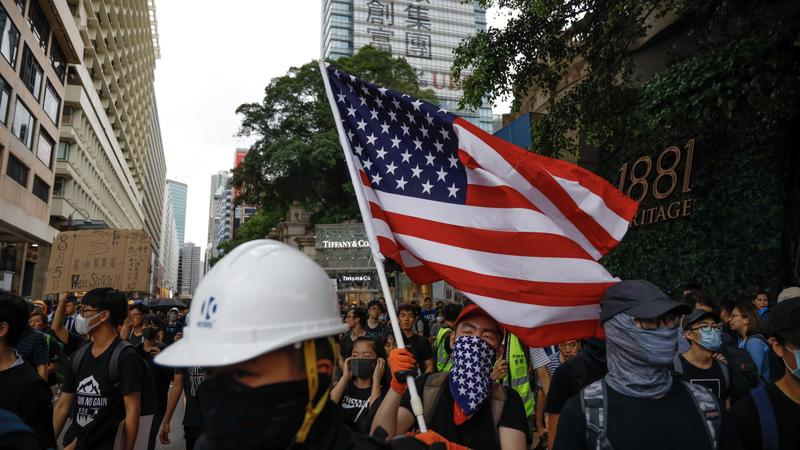
08.10 Hong Kong: CIA Outraged That Their Subversion Officer is Named, State Screams Foul - Julie Eadeh: CIA Spook Under Cover as Political Officer at US Embassy (Who else leads a team of two Marine Corps platoons in the middle of a war zone?)
https://ccas.georgetown.edu/article/serving-citizens-abroad-in-times-of-war/
Two days after Hezbollah’s raid into Israel and one day after the Israeli response, the Department of State and the Department of Defense began preparations to evacuate American citizens from Lebanon, setting the stage for what came to be the largest overseas evacuation of American citizens since the Second World War. Working alongside the two Marine platoons assigned to Lebanon was a tremendous honor. The 24th Marine Expeditionary Unit was the same unit that had suffered a tragic attack against the Marine barracks in Lebanon on October 3, 1983. The Marines were consummate professionals and their courage and expertise in their first return to Lebanon since 1983 were the lynchpin for the operation’s overall success.
The strength of the Lebanese local employees of the U.S. embassy, including some who survived the embassy bombing in 1983, as they stood alongside their American colleagues to help Americans in distress as their own country was being bombarded, speaks to the resilience and courage of the human spirit. But the Lebanon example is but one of many. The most rewarding aspect of a career in diplomacy has been developing relationships with locals and foreign officials to address challenges both on a political, policy level but even more fundamental and perhaps more important, on a human level. In nearly two decades as a diplomat, I have learned that relationships transcend time and place, and all peoples share universal hopes and concerns. Most importantly, I have learned that diplomacy is the art of turning contacts into friends, and friends into partners as we work together to solve common challenges, contribute to global development, and work towards achieving shared goals.
Julie A. Eadeh is a Political Counselor at the U.S. Consulate General in Hong Kong. She graduated from MAAS in 2002
https://news.cgtn.com/news/2019-08-10/Who-has-stirred-Hong-Kong-chaos--J2cVBSCzZu/index.html
https://latest-today-news.com/evidence-of-cia-meeting-hk-protest-leaders-china-summons-us-diplomats
https://zerohedge.whotrades.com/blog/43416982623
http://www.globaltimes.cn/content/1160764.shtml
![]()
![]()
![]() Jeff Brown and Yoshi Send from China
Jeff Brown and Yoshi Send from China
Western_Leaders_Idiots_Chinese_Competent_Part_1.pdf
Western_Leaders_Idiots_Chinese_Competent_Part_2.pdf
All_Wars_Satanic_Elite_Conspiracies_Against_Humanity.pdf
Illuminati_Formula_for_Undetectable_Total_Mind_Control_Slave.pdf
Origins_and_Techniques_of_Monarch_Mind_Control.pdf
The_Secret_Wars_of_the_CIA.pdf
![]()
![]()
![]()
![]() Belt and Road Initiative (BRI), Donald Trump and the Falsity of
Imperialism’s Narrative: Why BRI Is the Perfect Opportunity for China to
Neutralize 500 Years of the West’s Racist Superiority Paradigm
Belt and Road Initiative (BRI), Donald Trump and the Falsity of
Imperialism’s Narrative: Why BRI Is the Perfect Opportunity for China to
Neutralize 500 Years of the West’s Racist Superiority Paradigm
Note: Jeff Brown Does NOT Live in the People's Republic of China
By Jeff J. Brown 2 September 2019
Crosslinked with:
https://chinarising.puntopress.com/2019/09/02/belt-and-road-initiative-bri-donald-trump-and-the-falsity-of-imperialisms-narrative-why-bri-is-the-perfect-opportunity-for-china-to-neutralize-500-years-of-the-wests-racist-super/
https://youtu.be/Z7a00KJHS7k
https://soundcloud.com/44-days/china-can-use-bri-to-neutralize-trump-and-imperial-wests-false-racist-superiority-paradigm

Pictured above: no one has seen the likes of a cartoon demagogue, like Donald Trump in such a high seat of power on the world stage. Whether he was an electoral goof-up by the deep state or their man to create the chaos they need to steal more of the world’s wealth and possibly justify an eventual fascist coup d’état, remains to be seen. But in the interim, communist-socialist China and its BRI loom large over the global horizon, ready to take center stage. How Baba Beijing responds may determine humanity's fate.
Background explanation before starting: I am deeply honored that this paper was recently published in a Chinese national institute’s journal. They decided to publish a special edition focused on the Belt and Road Initiative (BRI). For two years, they have been collecting articles. Another journalist and I were the only two foreigners having the honor of being included in the collection. Herewith is the original English article. Looking back when I wrote it two years ago, it is very historically relevant. At the time, Donald Trump had been in the White House for less than a year and everything I predicted about the West’s response to BRI has come true.
2017.10.25
Author’s note: as this paper is being submitted, the CPC’s successful 19th Party Congress has just concluded. Its “New Era of Chinese Socialism” and 21st century vision for humanity will be taken as a public declaration of world war by Western empire’s deep state, and it will respond accordingly. Therefore, to use two popular English terms, yes, the following proposals are “out of the box” (original) and “off the wall” (counterintuitive), but they are now more relevant and urgent than ever before, not only for BRI, but for the sake of the whole planet.
I am honored that your institute has invited me to write an article about China’s Belt and Road Initiative (BRI), a history changing, visionary blueprint launched by Chinese President Xi Jinping in 2013. It includes two parts. First is the overland Silk Road Economic Belt (SREB), largely covering the Eurasian continent and on into Africa. The SREB harks back to the ancient Silk Roads that linked China to the rest of Eurasia. The other half of BRI is the 21st Century Maritime Silk Road (MSR), which also connects to China’s past, this time, to seafaring exploration and trade going back thousands of years.
While certainly a coincidence, the timing of establishing BRI and ongoing events being determined around the world by the West, are especially intriguing. After more than 500 year of ongoing colonial supremacy, there is no question that the arc of development of Western empire has entered into its decline phase. There are two books that explain this quite well and are both highly recommended reading. The Collapse of Complex Societies, by Joseph Tainter (http://www.wtf.tw/ref/tainter.pdf) and Collapse – How Societies Choose to Fail, by Jared Diamond
(http://cpor.org/ce/Diamond(2005)Collapse-HowSocietiesChooseFailureSuccess.pdf). These books have intriguing hypotheses as to why all societies, over the long term, eventually fall.
This is something China’s millennial history has experienced no fewer than six times, including most recently 1911, with the collapse of the Qing Dynasty. However, neither book considers Marxist-Leninist dialectics, which explain that every capitalist society is doomed to collapse by an ever upward spiraling concentration of wealth into fewer and fewer hands, with concomitant socioeconomic cannibalism, perpetual war in search of resources, and fascism to control the increasingly impoverished masses. Thus, by analyzing the hypotheses of Tainter and Diamond, and synthesizing theirs with Marxist-Leninist Theory, we can safely say that capitalist Western empire’s eventual collapse will be like no other in human history, given its systemic extremes and global reach on every continent.
Do I want to be alive when it happens? For the sake of schadenfreude, yes. However, when it does arrive, the survival of the human race may be severely challenged or even extinguished, due to a final paroxysm of nuclear war, with the West and Israel hoping to cling to its colonial system of tyranny, exploitation and extraction.
It may seem that I digress from the topic of BRI, but not really. Western imperialism is doing in spades what it does best against every country on Earth that is not a client state: economic extortion, geopolitical aggression, varying degrees of cold and hot war, as well as relentless, clandestine sabotage. This of course includes China. But more critically, any country that agrees to cooperate within BRI framework is, by imperial definition, an enemy of empire. The United States is supreme sovereign of Western empire. As they join BRI blueprint, America’s supposed allies (in reality client states), will be considered enemies within its own ranks. This includes most of Western Europe and the Middle Eastern states that are aligned in America’s global satrap hierarchy. The potential risk for these BRI partners to be on the receiving end of ever greater Western extortion and violence cannot be lost on China’s leadership.
Much of this was couched and finessed within the norms of international diplomacy and Western alliances, until January 20th, 2017, when Donald Trump was inaugurated as America’s 45th president. The only clean elections in the United States happen at the neighborhood level (school districts, town councils). Above this level, they are frequently rigged (see China Rising – Capitalist Roads, Socialist Destinations, Pages 73-94, “A Tale of Two Democracies: What It Is Like to Vote in the United States Compared to France?”).
I think Trump’s election was a miscalculation by America’s deep state, which includes Wall Street, the Department of Defense and its military contractors, the global oil bankers (Rockefeller, Rothschild, Morgan, etc.), the clandestine cliques (Central Intelligence Agency-CIA, National Security Administration-NSA, Defense Intelligence Agency-DIA, etc.) and their propaganda apparatus in the global mainstream media, Hollywood and New York City. Hillary Clinton was the chosen establishment puppet. Both sides undoubtedly cheated as usual. But the Clinton side underestimated Trump’s turnout and didn’t cheat enough, and whatever rigging the Trump side contributed was superfluous.
There is the opposing speculation that in reality, the deep state made sure that Trump got elected, in order to create chaos and instability to such a point, so that the American public would readily accept a “legal” coup to remove him from office, and replace him with a military junta, under the guise of “Continuity of Government” (COG). COG was actually implemented after 9-11 in the United States (see Footnote #4 in http://www.voltairenet.org/article185257.html). More on 9-11 later.
Either way, to say that all hell has broken loose in America, and by default, among its many client countries, is a gross understatement. One only has to look at the headlines, in any language across the globe, to realize this. Before Trump, BRI and Western empire were largely unrecognized to world citizens. BRI continues to barely make a blip on the global stage. This, while bombastic, mercurial, theatrical and deep state outsider President Trump is proving to be a megaphone for everything that is wrong and fake about the West, as well as being the perfect catalyst to accelerate its fall.
So, what is China’s leadership and the Communist Party of China (CPC) to do, with the unbelievable circumstances happening, since Trump became US president? The last thing your institute needs is an article extolling the virtues of BRI. My goal here is to play the role of devil’s advocate, think outside the box and propose challenging ideas. This is in order to avoid complacency and to precipitate a conversation among China’s opinion makers and leaders, to possibly look at alternative options to assure the short- and long-term success of BRI. Even more frightening is the potential nuclear destruction of the human race, which could be too easily caused by China’s enemies, thus making BRI a moot point.
Number Five of the 36 Stratagems of War is, “Loot a burning house”. I think we can all agree that President Trump is the gunpowder that has ignited the Western empire to flame. But, can China and its allies avoid getting badly burned in the process? The classic Chinese long game will not work if the West (including insane Israel) pulls the nuclear trigger. Even an exchange of 5-10 of today’s megaton hydrogen bombs would likely push Mother Earth’s delicate ecosystem into a humanity-ending nuclear winter. Why take the chance?
I have a theory as to why even a burning Western house of fire (a collapsing empire) can maintain its dictatorial grip over much of the world’s people, and will likely continue to do so, until a powerful, anti-capitalist country like China adopts a new and smarter game plan. It is because of the West’s unparalleled global propaganda machine, which is aggressively pushed and obsessively managed by the aforementioned deep state. And the reason that the vast majority of humanity, including the Chinese people and their allies still give the West the benefit of the doubt, is due to the image that the deep state so artfully projects on all of us.
Propaganda has been ceaselessly pushed on the world, since Alexander the Great’s murderous conquests, which happened across much of Asia in the 3rd century BC. This “Western Racist Superiority Paradigm” tells us that:
1. Western civilization is intellectually superior to the rest of the world.
2. Western civilization has no technical rival on Earth.
3. Western civilization is morally and spiritually above all other peoples.
Sadly, the vast majority of the human race accepts this as fact, while outside of China, only a tiny percentage of humanity even knows what BRI is. This phenomenon has deep roots in racism. Around the planet, Caucasians are perceived to be mentally and morally superior to the world’s non-White races, proving just how successful the West’s pedantic mantra really is (see http://chinarising.puntopress.com/2018/01/06/slavs-and-the-yellow-peril-are-niggers-brutes-and-beasts-in-the-eyes-of-western-empire-china-rising-radio-sinoland/) . As BRI continues to advance, the West will use this successful superiority propaganda to destroy BRI’s “Chinese” (meaning racially inferior) credibility and reliability.
The precedence is well established. Everywhere China goes to cooperate economically, the imperial West is right there to destroy the dream. As BRI continues to spread its wings, the deep state will be right there, spending billions to destroy it at every opportunity, having a terrible impact on China’s image, and causing untold suffering and losses with its BRI partners. The list is long, but look no further than Afghanistan, Ecuador, Iraq, Iran, Libya, Myanmar, Nigeria, North Korea, Philippines, Russia, Serbia, (South) Sudan, Syria, Ukraine and Venezuela, to name a few. Their cooperation with China is not the sole reason they have been attacked, and in some cases destroyed by imperial tyranny, but it is definitely an important contributing factor.
China has two choices. One is to keep going along to get along and playing the long game, as the West slowly devours itself. The problem is, even though the Western house is ablaze, it is big and it is global, so it could take generations to finally implode, and in the meantime, nuclear holocaust hangs thickly in the air. Therefore, I propose to short-circuit this conundrum, by changing the world’s attitude, that everything Caucasians do must be better than anything the Chinese offer, including BRI.
The only way to do this is to destroy the foundations upon which Westerners build their civilizational/racial superiority paradigm, that they are smarter, more creative, more just and righteous. In order to weaken these foundations, the best way is to attack them at their vulnerable points. The 36 Stratagem’s of War and Sun Zi’s Art of War consider a frontal assault, even if the enemy is weaker, as a last resort. Why needlessly lose so many soldiers and citizens, when victory can be won with elliptical strategies and asymmetric tactics? But, when the time is right to attack, one must be decisive, not hesitate and push through to victory. Chairman Mao and his generals brilliantly proved this to be true in the Korean and Sino-Indian Wars.
Now is not the moment for a full face-to-face showdown with the West. But, with Donald Trump loudly personifying the West’s decline, the time is ripe for China to undermine empire, by elliptically attacking its weak points, while continuing to bolster BRI with its development partners.
Below are five false Western narratives to exploit. Destroying their supposed veracity would greatly undermine the West’s Racist Superiority Paradigm of higher intelligence, greater creativity and superior morality. In chronological order, they are:
1) 15th century Age of Exploration
2) Germ Warfare during the Korean War
3) The John F. Kennedy, Martin Luther King Jr. and Robert F. Kennedy assassinations
4) Apollo moon landings
5) September 11, 2001 (9-11)
15th century Age of Exploration
The whole Western Age of Exploration narrative is a cruel and cynical myth for two reasons.
First, as explained in many books, notably An Indigenous Peoples' History of the United States (ReVisioning American History) https://www.amazon.com/Indigenous-Peoples-History-ReVisioning-American/dp/0807057835, Westerners were not explorers, but savage, genocidal pirates who exterminated about 100 million natives in the New World alone. It was no different in Africa and Asia, where the great Indian philosopher Dharampal calculated that British killed up to 500 million of his fellow citizens in the Crown Jewel alone (http://www.swaraj.org/shikshantar/resources_dharampal.html), and others get verifiable numbers as high as 1.8 billion (https://sites.google.com/site/muslimholocaustmuslimgenocide/indian-holocaust). The West has committed the greatest crimes against humanity, one terrifying global holocaust after another, yet the vast majority of the world’s people consider Caucasians to be morally and spiritually superior to their own civilizations.
This Western myth is taken as gospel in China too. Several Chinese friends have told me that in school, they learned that Christopher Columbus was a great and daring explorer who “discovered” the New World. In fact, he was personally responsible for the extermination of millions of natives, (http://www.thepeoplesvoice.org/TPV3/Past-News.php/2013/10/12/christopher-columbus-and-the-genocide-of-1). Chinese friends have told me they are taught the whitewashed myth of “Western exploration”, yet every other European “explorer” pirate after Columbus just multiplied his genocidal game plan by many magnitudes. I have talked to hundreds of Chinese citizens across the country, from all walks of life who told me that “the West and its institutions are morally and intellectually better than we are”. This is tragic evidence of the deep state’s incredibly successful propaganda, perfected over the last 2,500 years.
By exposing the reality of the West’s marauding piracy around the world in the 15th-20th centuries, Western Racist Superiority Paradigm Number 3 (moral and spiritual superiority), becomes a shameful farce. And what better way to contrast the West’s ignominious, ongoing colonialism, to the nonviolent, peaceful blueprint of China’s BRI?
The second Western myth about the Age of Exploration is that Caucasians were technologically superior to anyone else at that time, including the Chinese. Even if you only accept the standard narrative that Chinese Admiral Zheng He’s exploration was limited to Asia and the east coast of Africa, this myth is totally false. But, 99% of the world’s non-Chinese don’t know this. As well, my Chinese friends tell me that everything they learned at school about Zheng He was reduced to one paragraph, even though he was by far one of history’s greatest navigators and explorers.
But the real lie is that Westerners “discovered” the New World. Gavin Menzies, in his majestic books, 1421 and 1434 (http://www.gavinmenzies.net/), proves beyond a shadow of a doubt – with physical evidence, that Zheng He and his captains landed all over the Western hemisphere, long before Columbus was even born. The American Public Broadcasting System (government owned) did a nice 2-hour documentary on Mr. Menzies’ 1421, but only aired it once and it was soon forgotten (https://www.youtube.com/watch?v=4yK-9hxk5HY). In the meantime, the deep state mainstream media has spent much time and energy refuting all of Menzies’ years of research. I bought into this propaganda myself for ten years, before finally reading his books. I was speechless. The evidence is overwhelming.
Alongside BRI’s 21st Century Maritime Silk Road, China should be juxtaposing the truth about its intellectual, creative and moral superiority in the 15th century. Attacking this Western false narrative undermines all three Racist Paradigms, since the Chinese explored, traded and left colonies across the New World much earlier, without exterminating millions of natives in the process. Ironically, the Chinese colonies that started in the New World in the early 15th century were also decimated by the West’s pirates, starting with Columbus in 1492, along with all their indigenous neighbors.
Germ Warfare during the Korean War
To understand how fearful the West is of the world learning about America’s germ warfare during the Korean War, one only has to look at the current situation, seventy years later. After the United Nations Report of the International Scientific Commission for the Investigation of the Facts Concerning Bacterial Warfare in Korea and China (ISCR) was released in 1952, it was viciously attacked and incessantly suppressed by the mainstream media across the West nonstop, year after year. This ruthless campaign of total media blackout and censorship was conducted in a transatlantic, coordinated fashion. The ISC’s most famous member, Dr. Joseph Needham, was savagely vilified and his reputation trashed for years thereafter. While he always maintained the truth of the report, the mainstream media made sure that the world thought he had recanted.
However many copies of the ISCR were published, the deep state went to extraordinary extremes to find them and destroy them (https://mronline.org/2017/09/11/a-lost-document-from-the-cold-war/). How rare is a copy of this 667-page tome, on printed paper? The last known English language copy in print was sold at auction in 2013 (https://www.upi.com/Top_News/World-News/2015/06/09/Report-claiming-biological-weapons-deployed-in-Korea-up-for-auction/9861433861216/), and never saw the light of day thereafter. I think we can guess that the deep state paid any price to buy it and keep it censored.
Japan recently came clean about its use of bio- and chemical weapons during World War II and admitted to its infamous Unit 731 in Harbin, China (http://chinarising.puntopress.com/2017/08/19/japan-admits-bio-and-chemical-weapons-use-in-wwii-when-will-the-us-come-clean-china-rising-radio-sinoland-170819/).
I bought two copies of the 1952 ISC report in Chinese from book dealers in China, which I have in hand, as well as an original copy of “Our Complaint” (我们的投诉), which contains citizens’ testimonies of America’s many crimes against humanity in their villages. Amazingly, a colleague of mine found the long-lost English version of the ISCR on Google Books and he managed to download a high-quality PDF of it, making it available for the whole world. He, other writers and I went on to create the Bioweapon Truth Commission (BWTC) and its Global Online Library (GOL: www.bioweapontruth.com).
Having reviewed the ISCR, it is easy to see why the deep state has pathologically worked for 70 years to keep the ISCR flushed down the Orwellian Memory Hole, helping to assure that America’s use of bioweapons during the Korean War would remain expunged from human consciousness. This is because the ISCR is so detailed and so complete, that it absolutely proves the demonic truth about the West.
Americans’ use of Unit 731’s bioweapon technology in Korea strikes a powerful blow to Western Racist Superiority Paradigm Number 3, that they are morally and spiritually superior. Exposing this truth will go a long way to weakening the West’s vaunted “shining beacon on a hill” reputation, giving China added breathing space to promote and protect its noble, cooperative and win-win BRI.
The John F. Kennedy (JFK), Martin Luther King Jr. (MLK) and Robert F. Kennedy (RFK) assassinations
If you believe that JFK was murdered by the lone communist Lee Harvey Oswald, then even in the United States, you are in the minority. Ever since the bogus Warren Commission came out with its sham report in 1963, a majority of American citizens still believe that he was killed by the deep state (http://news.gallup.com/poll/165893/majority-believe-jfk-killed-conspiracy.aspx). In the aforementioned book, China Rising, the chapter, “On this 9/11: why John F. Kennedy was killed by the deep state, in America’s first coup d’état”, Pages 52-55, does a thorough job of explaining what Americans already know in their guts is the truth. James Douglass’s JFK and the Unspeakable: Why He Died and Why It Matters (http://www.huffingtonpost.com/oliver-stone/jfk-and-the-unspeakable_b_243924.html) includes in-depth research and detail.
It’s no different with Martin Luther King Jr.’s murder. In 1999, the King family conducted a civil trial, which was filled with sworn testimony and affidavits (http://www.washingtonsblog.com/2015/01/martin-luther-king-assassinated-us-govt-king-family-civil-trial-verdict.html). The jury only took minutes to convict the US government for Dr. King’s killing. Thanks to the courageous work of the King’s lawyer, William F. Pepper, a solid US majority believes the deep state was responsible for Martin Luther King’s murder (http://www.pollingreport.com/race2.htm). Mr. Pepper has written the definitive account of this sordid saga, naming names, including the Memphis hospital director who suffocated Dr. King to death with a pillow, after he arrived, still alive: The Plot to Kill King: The Truth Behind the Assassination of Martin Luther (https://www.amazon.com/Plot-Kill-King-Behind-Assassination/dp/1510702172). One of his interviews about this book and with its closing comments about JFK makes for spine tingling listening (http://noliesradio.org/archives/118087).
Mr. Pepper has now turned his attention to Robert F. Kennedy’s assassination and is representing RFK’s patsy “killer”, Sirhan Sirhan, in a civil case, using the same successful game plan as the MLK trial (https://whowhatwhy.org/2013/04/05/rfk-assassination-legal-case-update/). He has all the evidence that RFK was killed by the US government, but it takes years to push a case like this to justice.
The truth about these three state sponsored murders of America’s own leaders shatters beyond any reasonable doubt the West’s Racist Superiority Paradigm Number 3. Bringing them to light in every country where China is cooperating with BRI, should be included in its propaganda strategy.
Apollo moon landings
Until this year, I always wondered about whether the Americans landed men on the moon, during the Apollo Space Project, 1969-1972. Any doubt was shattered, by reading David McGowan’s Wagging the Moondoggie: Parts I-XIV, available for free online (http://centerforaninformedamerica.com/moondoggie-1/). Like me, you will laugh at yourself for your gullibility and innocence, swallowing such a humongous fabrication all your life. How did they pull it off? The joke at NASA was that, “We have Hollywood and the Soviets don’t”, and that sums up the truth. You come to realize that the deep state can make all of humanity believe anything – absolutely anything. After reading Mr. McGowan’s detailed and factually demonstrated book, anybody with a minimum knowledge of science knows humankind has never been beyond the Van Allen radiation belts, just a few hundred kilometers into space.
Unlike the aforementioned three assassinations, only a small percentage of Americans believe the moon landings were staged (http://news.gallup.com/poll/3712/landing-man-moon-publics-view.aspx). Debunking this colossal lie destroys all three Racist Superiority Paradigms, that Westerners are smarter, more creative and morally superior. Once all the background is explained in the Moondoggie book, it is easy to show people the truth, because it is so obvious, and is more easily accepted, since it is less ideological. So, this is easily the best weak link to attack first, in support of BRI.
September 11, 2001 (9-11)
The staged explosions on September 11, 2001, that brought down three NYC skyscrapers, blew up the Pentagon and in a supposed plane crash in a Pennsylvania field were manifestly false flags. The China Rising chapter, “Deep State West (Wing)” explains the absurdity of the 9-11 official cover-up. Even a majority of Americans think there was a cover-up about 9/11 (https://yougov.co.uk/news/2013/09/12/new-poll-finds-most-americans-open-alternative-911/ and https://www.prisonplanet.com/articles/October2006/141006poll.htm), and these numbers continue to grow every year.
Exposing this heinous Western crime against humanity makes a powerful juxtaposition to China’s noble and cooperative BRI vision and proves that the West’s Racist Superiority Paradigm Number 3 is a myth.
***
I appreciate the fact that this kind of counterpunching against a foe is not something the Chinese establishment is fond of doing. But the circumstances in the West, with its dangerous decline, a demagogue in the White House and the human race on the precipice of nuclear holocaust, all calls for exceptional means. Not to mention that in spite of all this, the West’s Racist Superiority Paradigm continues to keep a stranglehold on the world’s peoples, ironically, most of whom are victims of Eurangloland’s (NATO, Europe plus Australia, New Zealand and Israel) imperial colonialism. Unless its paradigm is undermined and discredited – the sooner the better – the West can continue to be in a position to sabotage China’s BRI, as well as tyrannize all of BRI’s cooperative partners.
How can China achieve this, subtly and adroitly, without blaring large headlines on the front page of the People’s Daily, “AMERICA’S MOON LANDINGS WERE A HOAX!”
First, it must be realized that doing so is not that outrageous, since a growing number of Westerners already doubt the official stories being maintained by the deep state. There is already a swelling movement in the US to expose Columbus for what he was, and to change Columbus Day to “Indigenous People’s Day” (http://theantimedia.org/8-cities-that-finally-removed-columbus-from-columbus-day/ and http://www.wowt.com/content/news/Movement-to-replace-Columbus-Day-with-Indigenous-Peoples-Day-gains-momentum-in-US-cities-450024863.html). Yes, world history will be rewritten when China opens its remaining Ming Dynasty archives on Zheng He, and when Gavin Menzies finds the money he needs (something China should finance 100%) to complete his research on China’s precocious presence in the New World, but humanity is owed the truth and the Chinese people deserve to have their story told. It is a moral imperative to expose America’s germ warfare crimes in Korea. A majority of Americans know in their hearts that their own government perpetrated the murders of JFK, MLK and RFK, as well as 9-11. The world’s people also deserve the truth about the complete Hollywood fabrication of the moon landings.
And this brings up a good point. By doing all of this, China will burnish its reputation around the world for “seeking truth from facts”, which is popularly practiced in the history of the CPC, and before, going back to the Tang Dynasty. The world’s peoples will respect and appreciate China for setting the record straight, which will cast a shining light of truth and justice on BRI. This will enhance trust and confidence in Chinese civilization that BRI needs, to have maximum success over the next 100 years.
Here are some ideas to discuss:
Chinese media has its new China Global Television Network (CGTN), as well as China Central Television (CCTV) in foreign languages. Both can create extended series of documentaries, not just one-off videos that don’t gain traction. On a regular and long-term basis, they can invite many different experts on the air and report discoveries and information circulating about these topics. As Edward Bernays has proved since he wrote Propaganda (http://whale.to/b/bernays.pdf), doing a one-off report will fail. This is why PBS could show its aforementioned 1421 documentary once and not worry about a groundswell of interest to rewrite the history books, which is of course being fought ferociously by the deep state. Repetition and saturation are the key, as we can see all over China, with the Party’s socialist propaganda.
Russia and China are expanding cooperation in media and propaganda (https://gbtimes.com/china-russia-boost-media-cooperation). However, two other anti-imperial, socialist media outlets need to be invited too, to create a global colossus, that can compete with BBC, CNN and Fox News. They are Iran’s Press TV (http://www.presstv.com/) and Latin America’s TeleSUR (https://www.telesurtv.net/english/index.html). To date, Press TV is the only one that reports on the West’s false flags and is debunking its myths, with RT starting to do so, too. Russian, Chinese and Latino allied networks need to join with Press TV and plan a long-term global strategy to destroy the West’s Racist Superiority Paradigm, while promoting BRI and other cooperative efforts, like the Asian Infrastructure Investment Bank (AIIB), Brazil+Russia+India+China+South Africa (BRICS), Collective Security Treaty Organization (CSTO), Eurasian Economic Union (EAEU) and Shanghai Cooperation Organization (SCO).
***
In closing, it is clear that the historical precedence of the West trying to overthrow the CPC and sabotage the country’s global economic cooperation will increase, as BRI continues to make inroads with traditional imperial client states. These Western satraps can pay a very heavy price for working with China, so China needs to respect and respond to the terrible risks they take, for cooperating with the Chinese.
China has two choices. It can continue to play the long game and hope that Western empire collapses, without world history adding a nuclear holocaust to the textbooks. If that happens, BRI is of no use anyway. Or, China can short circuit this eventuality, by destroying the West’s Racist Superiority Paradigm. The only way to do this is to debunk the deep state’s masterful global propaganda machine. And that means exposing all the myths and false flags that keep the world’s peoples brainwashed.
Otherwise, the West and Israel can start World War III and in the eyes of humanity, make sure that China takes all the blame. Something to think about, discuss and hopefully take a new tack.
Thank you for reading.
Key words:
Belt and Road Initiative, Donald Trump, Communist Party of China, New Era of Chinese Socialism, Western Empire, Xi Jinping, Eurasia, Capitalism, Colonialism, 9-11, 36 Stratagems of War, Nuclear Holocaust
*

Bio: Jeff J. Brown is a geopolitical
analyst, journalist, lecturer and the author of The China Trilogy. It
consists of 44 Days Backpacking in China – The Middle Kingdom in the 21st
Century, with the United States, Europe and the Fate of the World in Its
Looking Glass (2013); Punto Press released China Rising – Capitalist Roads,
Socialist Destinations (2016); and for Badak Merah, Jeff authored China Is
Communist, Dammit! – Dawn of the Red Dynasty (2017). As well, he published a
textbook, Doctor WriteRead’s Treasure Trove to Great English (2015). Jeff is
a Senior Editor & China Correspondent for The Greanville Post, where he
keeps a column, Dispatch from Beijing and is a Global Opinion Leader at 21st
Century. He also writes a column for The Saker, called the Moscow-Beijing
Express. Jeff writes, interviews and podcasts on his own program, China
Rising Radio Sinoland, which is also available on YouTube, SoundCloud,
Stitcher Radio, iTunes, Ivoox and RUvid. Guests have included Ramsey Clark,
James Bradley, Moti Nissani, Godfree Roberts, Hiroyuki Hamada, The Saker,
and many others.
Jeff can be reached at China Rising, jeff@brownlanglois.com, Facebook,
Twitter, Wechat (Jeff_Brown-44_Days) and Whatsapp: +86-13823544196.
*
Creative Commons: This article by Jeff J. Brown is available for
re-publication free of charge under Creative Commons. It may be translated
into any language and republished anywhere in the world. Editing is
permitted of the article(s). You may edit my article(s) and bio to correct
spelling, grammar, word usage and any misstatement of facts.
You may change any wording that may be culturally offensive or inappropriate
to the reading audience. You may change the title of my article(s) and you
may edit them to fit the desired space and word length preferred by your
publication.
If you edit and publish my article(s) the only request is that the intended
meaning in my article(s) not be changed or taken out of context. You may use
the suggested graphics, which to the best of my knowledge are available free
under Creative Commons, but I cannot guarantee that they may be used without
the permission of their creator and/or owner. You may select your own choice
of graphics, pictures and /and or videos (or none) that complement the
intended meaning of my article. Please share and distribute this article
widely. My contact email is jeff@brownlanglois.com
![]()
![]()
![]()
10
November 2012, 19:30
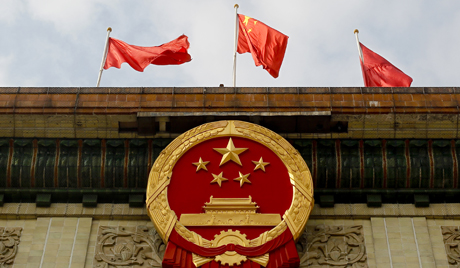
In an event that takes place every ten years the People’s Republic of China
has gathered to choose new leaders. Amid extremely tight security and little
information being readily available China watchers are struggling to fathom
what the future direction of the country will be. This will be made clear
when the congress is completed but statements by outgoing leader Hu Jintao
give us a very good indication.
The People’s Republic of China has begun the process of reforming their
power structure and selecting new members to leadership positions during the
current 18th Congress of the Communist Party of the People’s Republic of
China.
The process of changing the leadership of the country takes place once every
ten years and involves a gathering of China’s Communist Party delegates from
all over the Republic.
While the West is full of talks of reforms and changes in their never ending
desire to see the Communist country collapse, Chinese leader Hu Jintao has
made it clear that China is not going to change. The path of Socialism with
a Chinese Character will be continued and made stronger and continue to be
built upon.
This week the leadership will be announced after they are formally appointed
by the Central Committee to their respective positions, the Central
Committee is chosen in turn by the approximately 2,987 delegates of the
Party Congress.
The makeup of the Communist Government includes the head, the Secretary
General of the Party, or the “President” as he is commonly referred to in
the West, followed by 9 members of the Politburo Standing Committee, then 24
members of the Politburo itself who answer to the Central Committee which is
made up of 204 members and has 167 alternate lower ranking members, they in
turn answer to the Party Congress made up of approximately 2,400 delegates.
Secretary General Hu Jintao began the congress by addressing the delegates
in a speech that has seen no end of analysis by the West. Among his main
points was a call to continue to fight corruption at all levels. He was
unusually strong in his language for calling for all to be treated equally
when it came to answering for corruption related offenses and crimes against
the people, “No one is allowed to place oneself above the party
organization. We must ensure that all are equal before discipline.”
Reflected the unrest amongst the Chinese people and the seriousness of the
problem Hu made it clear that if something is not done it could lead to the
end of the Socialist China as a whole and the 91 year old party: “If we fail
to handle this issue well, it could prove fatal to the party and even cause
the collapse of the party and the fall of the state, we must strengthen
education about combating corruption and promote clean government and
improve the culture of clean government. A tough position on cracking down
on corruption must be maintained at all times, and thorough investigations
into major corruption cases must take place and we must work hard to resolve
problems of corruption that directly affect the people.” Hu said in his
statement.
The West of course is in a quandary as little information is being made
available by the party as to the direction they are going to take and calls
to end corruption only add to the West’s worries as they affect Western
attempts at economic manipulation and the subversion of the Communist system
of the People’s Republic.
As China is the most populated country on Earth and the US is extremely
dependent on China economically, new policies by China could make or break
the US economy, especially at a time when it is weak and depends on
affordable Chinese exports and huge Chinese investment to keep it afloat,
anti-Communist rhetoric is kept to a minimum as are any moves to upset the
superpower.
Chinese sentiment toward the US is at a low reflected by a US Embassy
“election party” at a ballroom in a Beijing hotel that fell flat on its face
as most of the invited officials did not attend. Chinese security services
questioned an American diplomat as the party was conducted without the
permission of the authorities. The American diplomat arrogantly answered
that they did not need permission.
Another worry for the West has been statements pointing to the intention of
China to become more assertive in protecting its territorial integrity and
maritime interests. During his speech Secretary General Hu Jintao stated
that China is committed to: "enhancing our capacity for exploiting marine
resources … to resolutely safeguard China's maritime rights and interests
and build China into a maritime power.”
During the Congress statements have been made regarding increasing China’s
economic role in the world and strengthening its economic might. Something
China watchers say may be of greatest concern to the West, currently
seriously weakened by an economic crisis and the US in particular which is
also bogged down in military adventures all over the planet.
Unfortunately security is so tight around the congress and it is so
difficult for reporters to get in that there is little detailed information
available as to concrete decisions that are being made, however once the
Congress is complete more information will become available.
Outgoing Secretary General Hu Jintao made an impassioned plea during his
speech regarding correcting problems of concern to society saying, “We must
exalt the true, the good and the beautiful and reject the false, the evil
and the ugly". A very beautiful and eloquent thought, in my opinion, from
the leader of a superpower, it is unfortunate other world leaders do not
share that sentiment.
hem some hot food, gave them blankets and resources. We will keep fighting and I will keep talking to you.
![]()
Last Update: 11/19/2023 20:00 -0000
Please help keep us going and make a donation Thanks to all supporters! Copyright JAR2 2003-2103 All Rights Reserved Publishing Banned Truth Since June 06, 2003
|

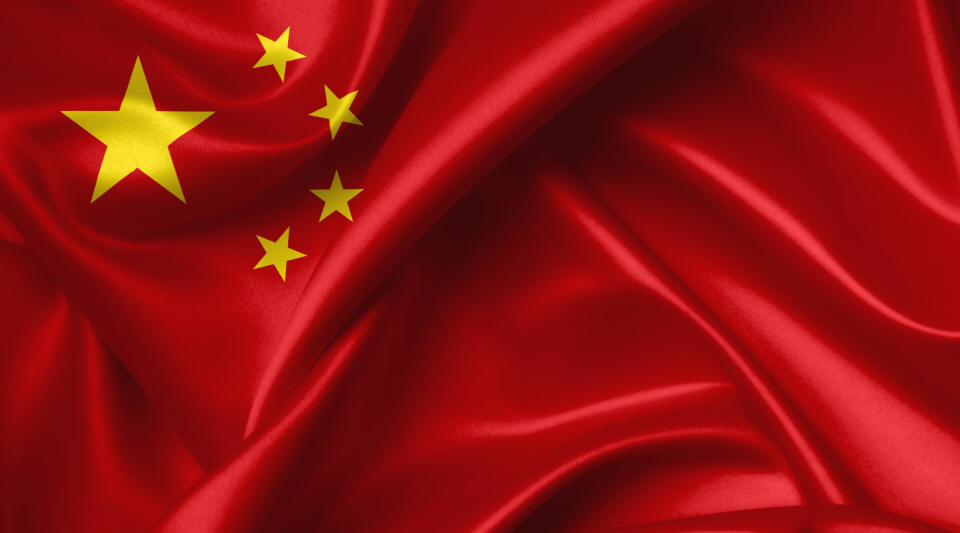


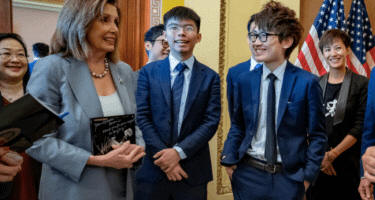
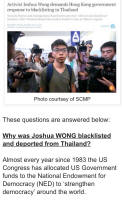
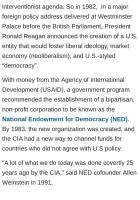

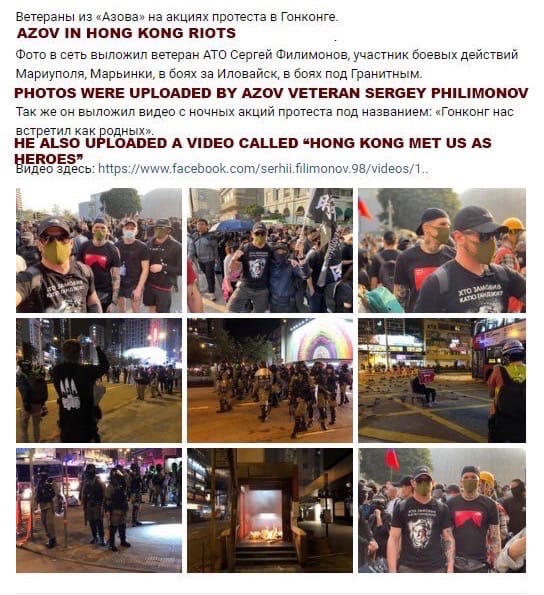

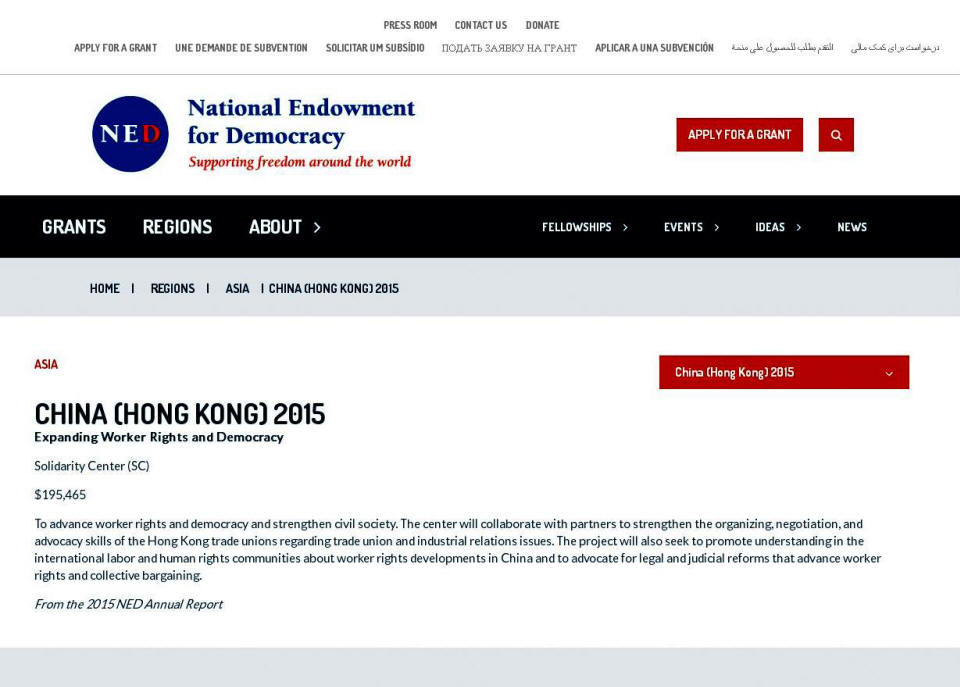
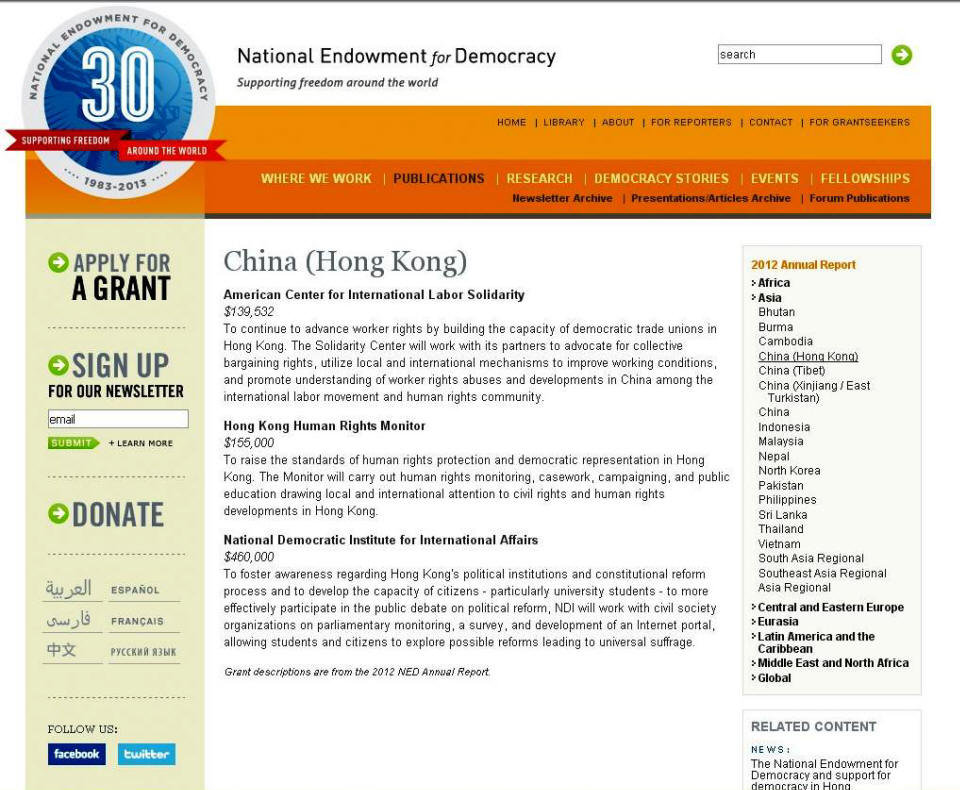
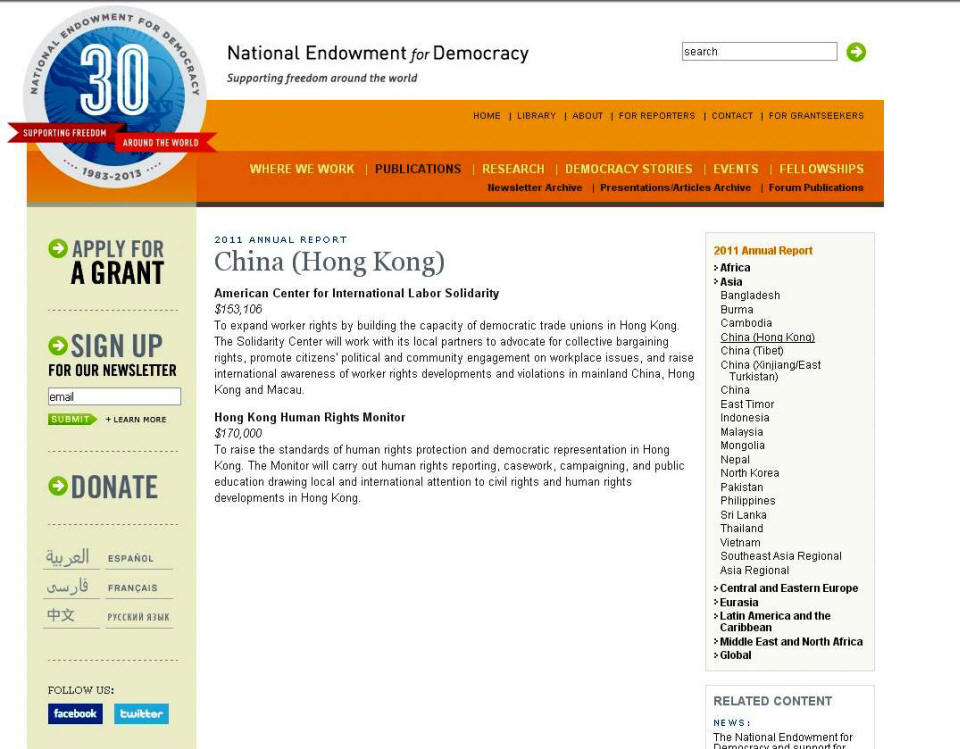
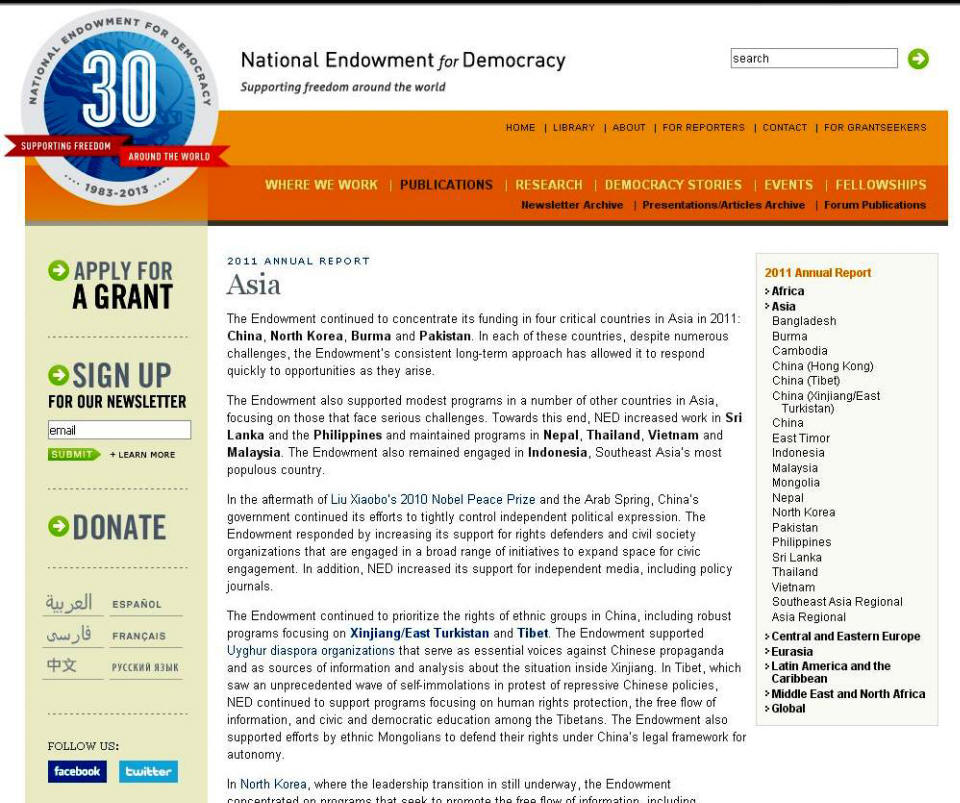
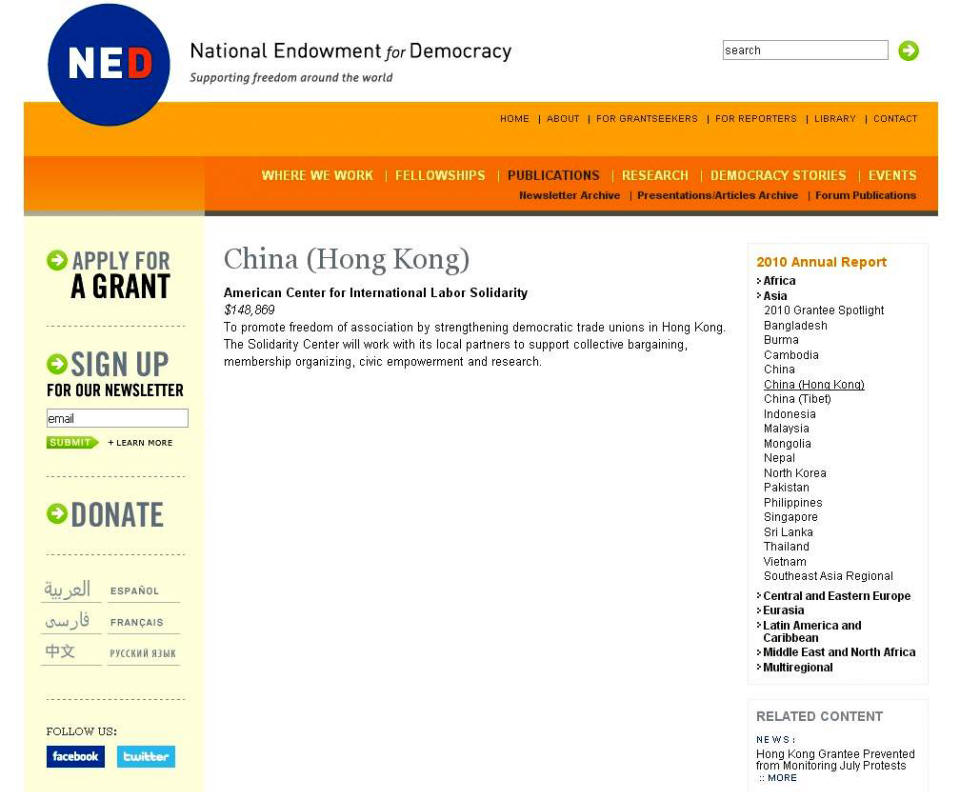
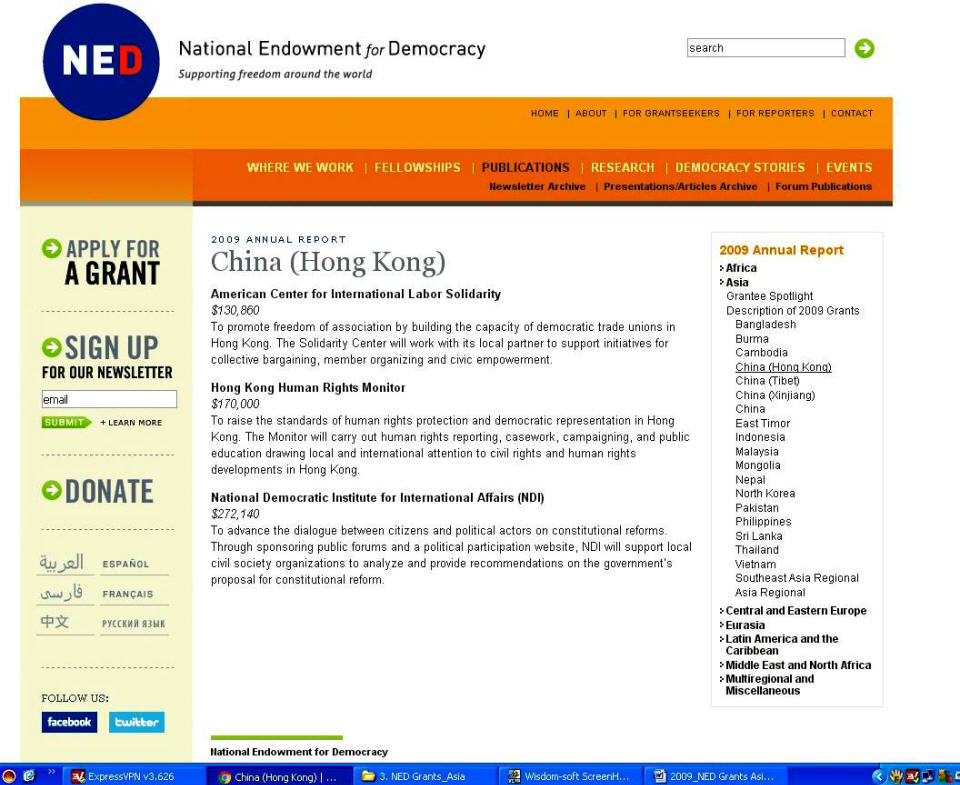
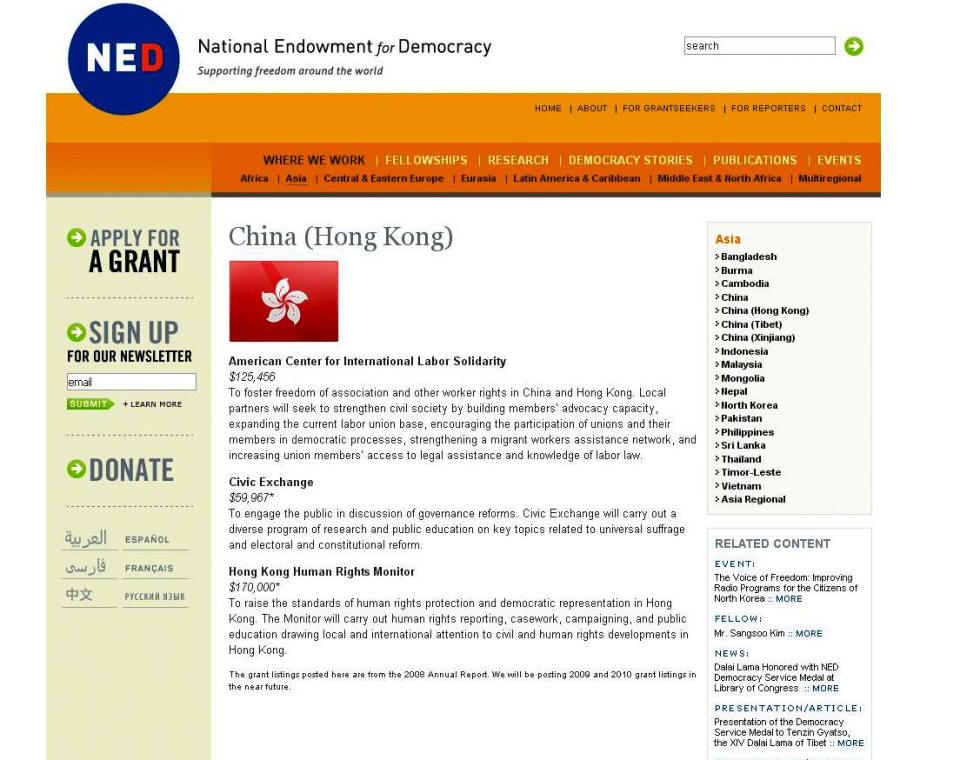
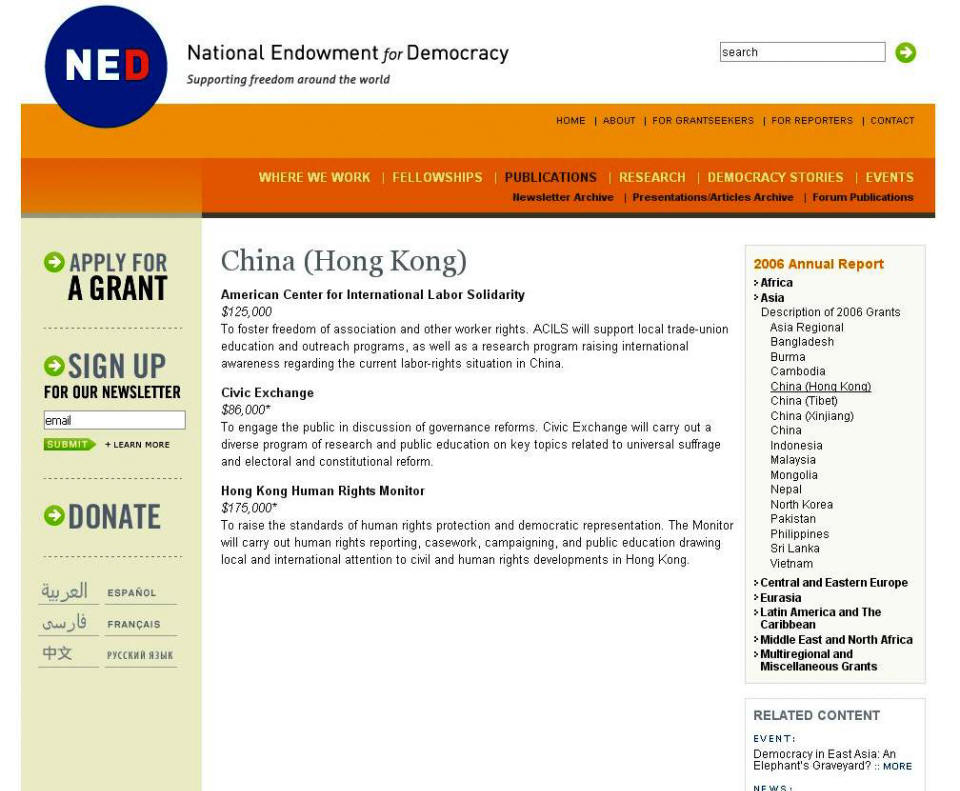
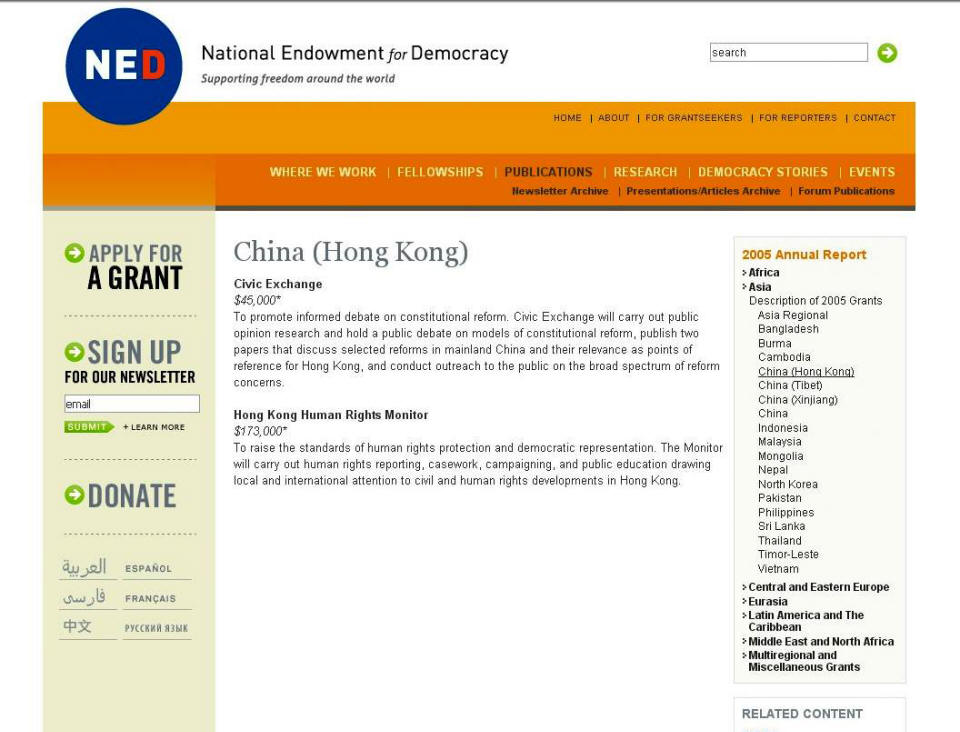
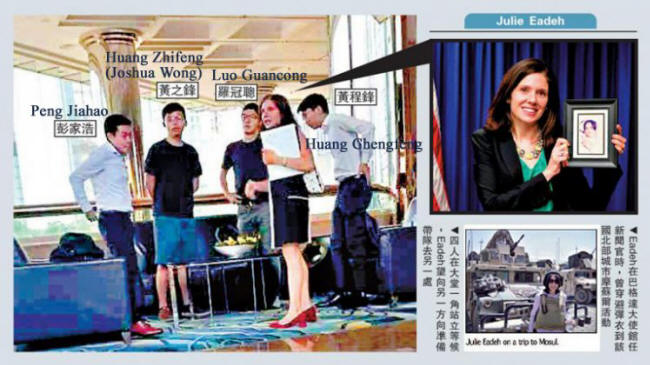

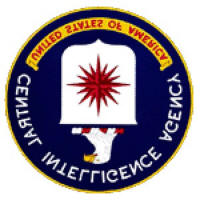



_small.jpg)























